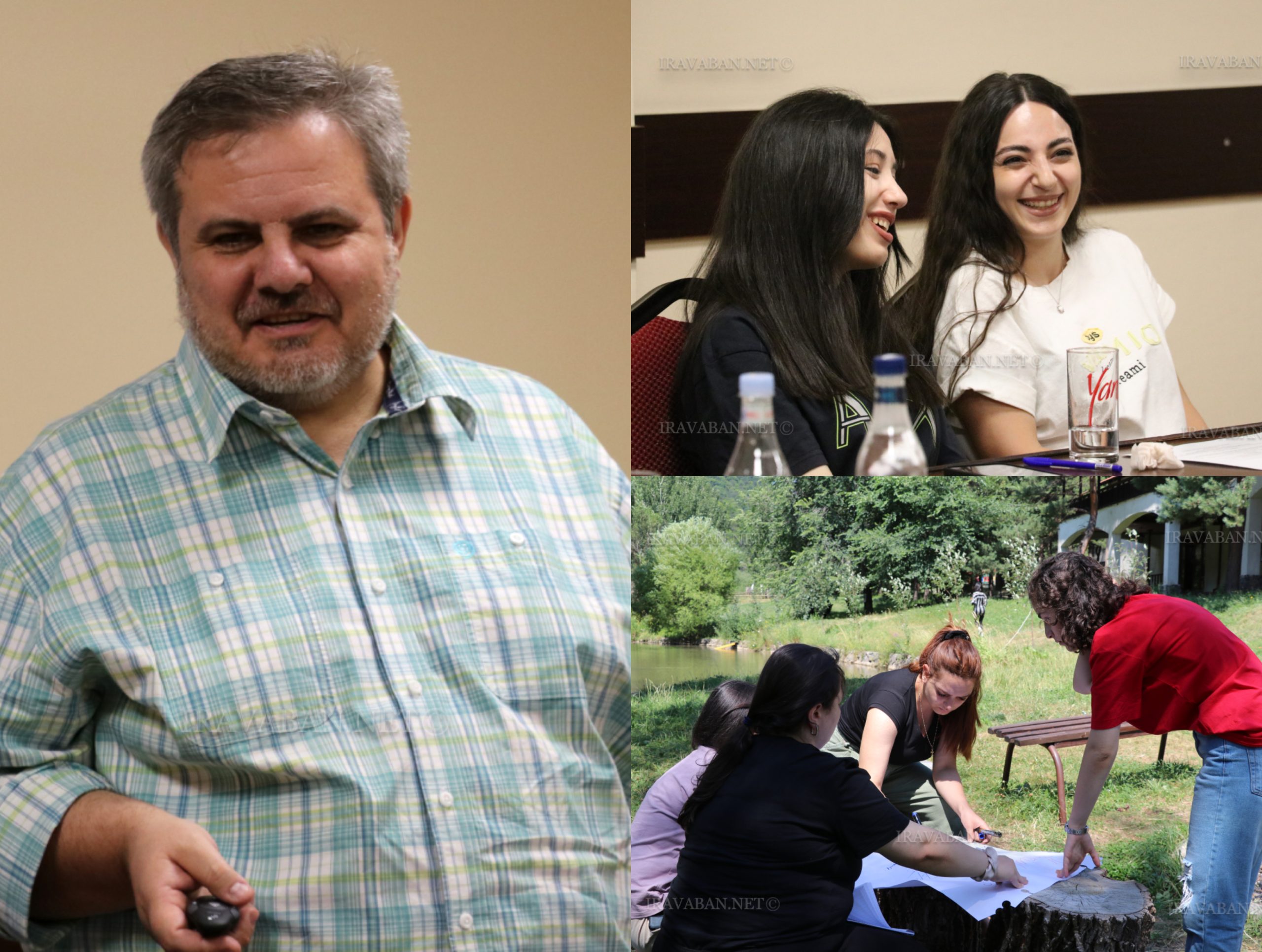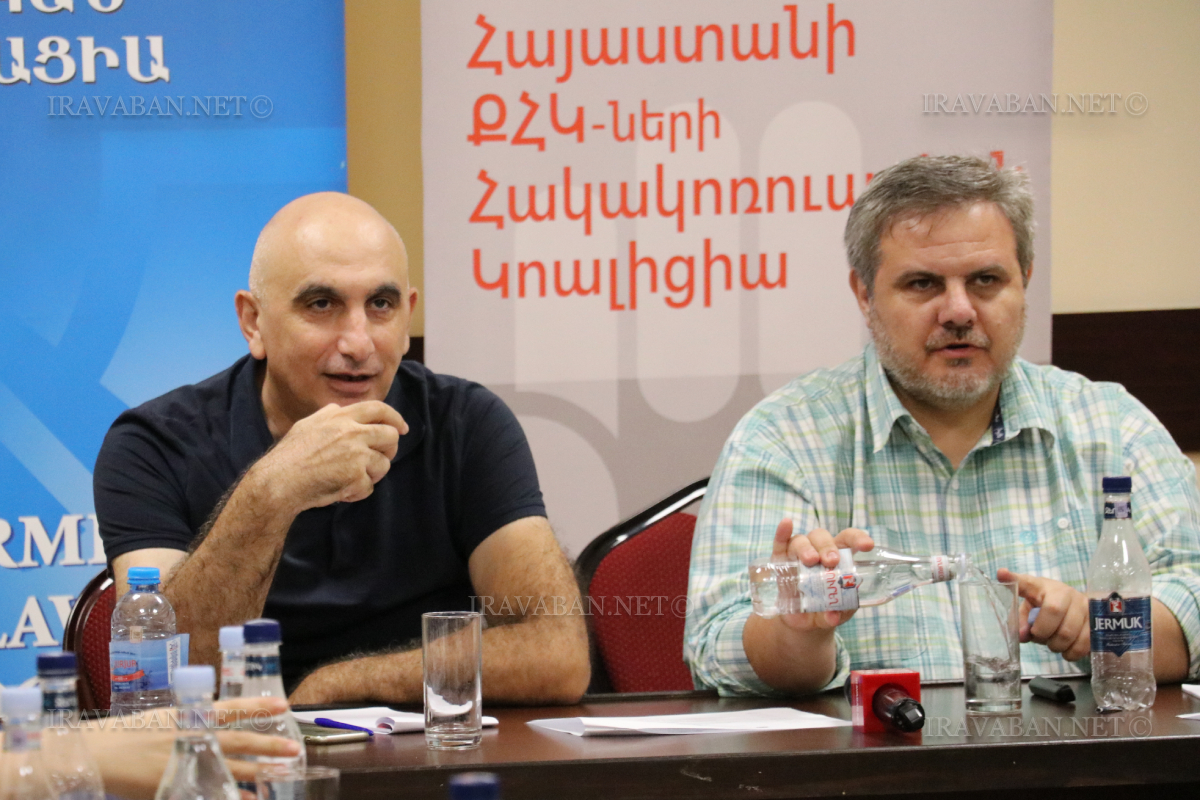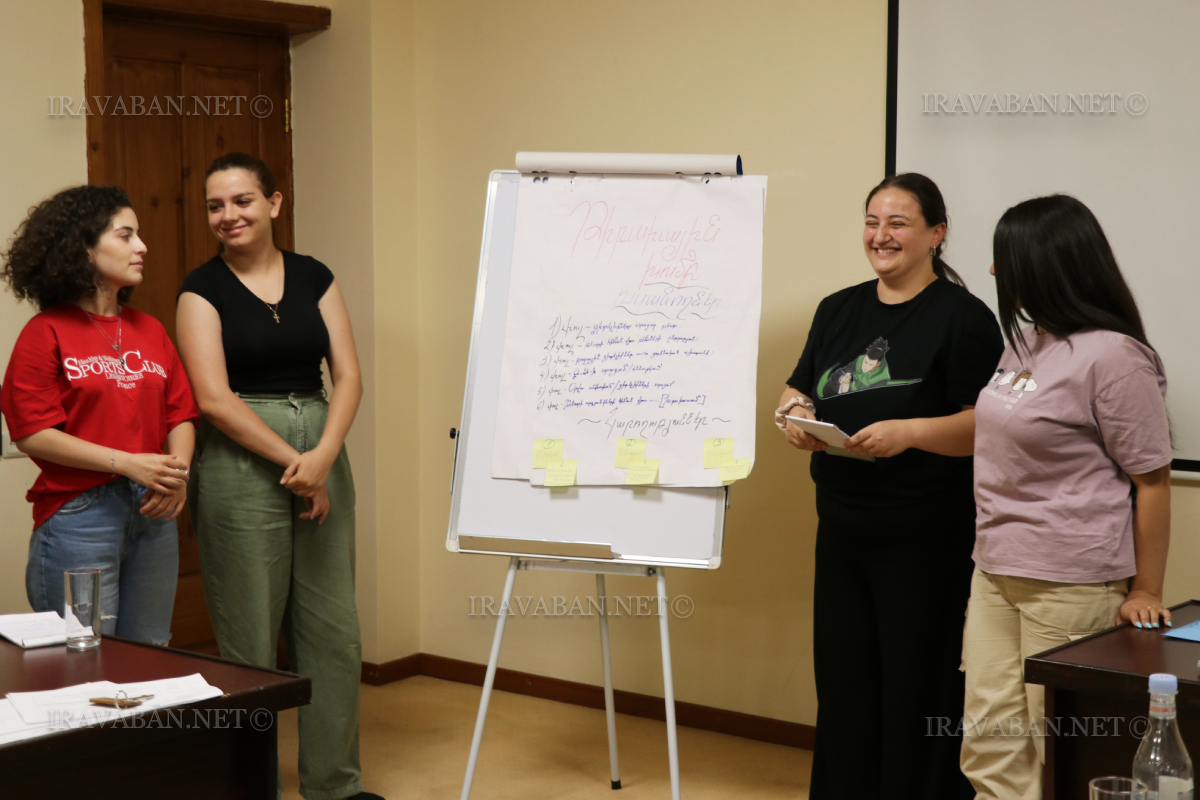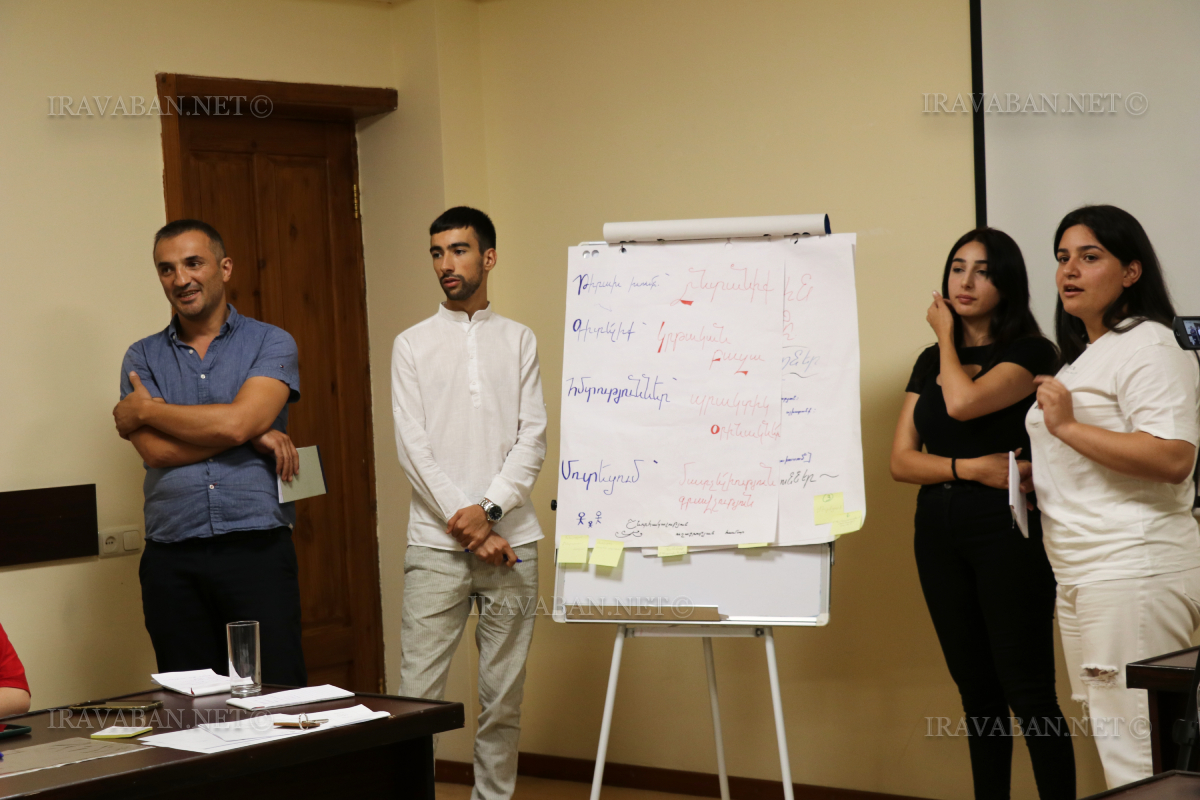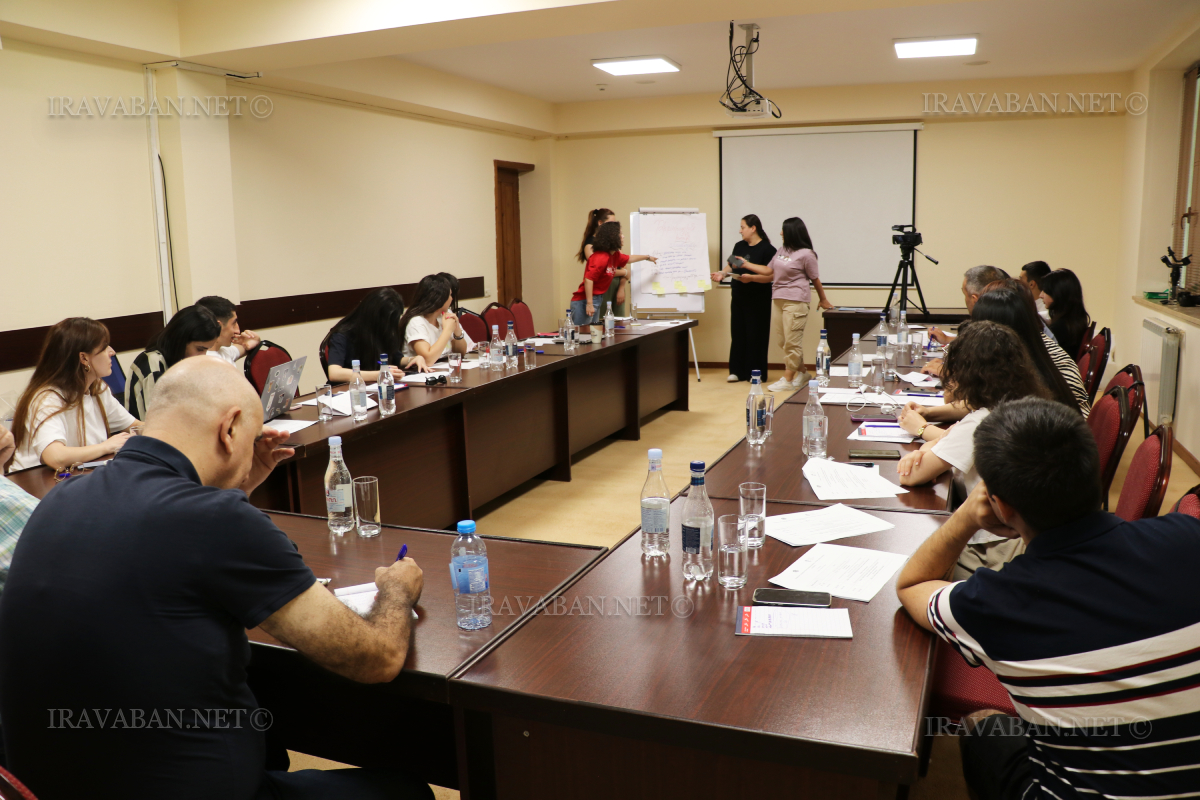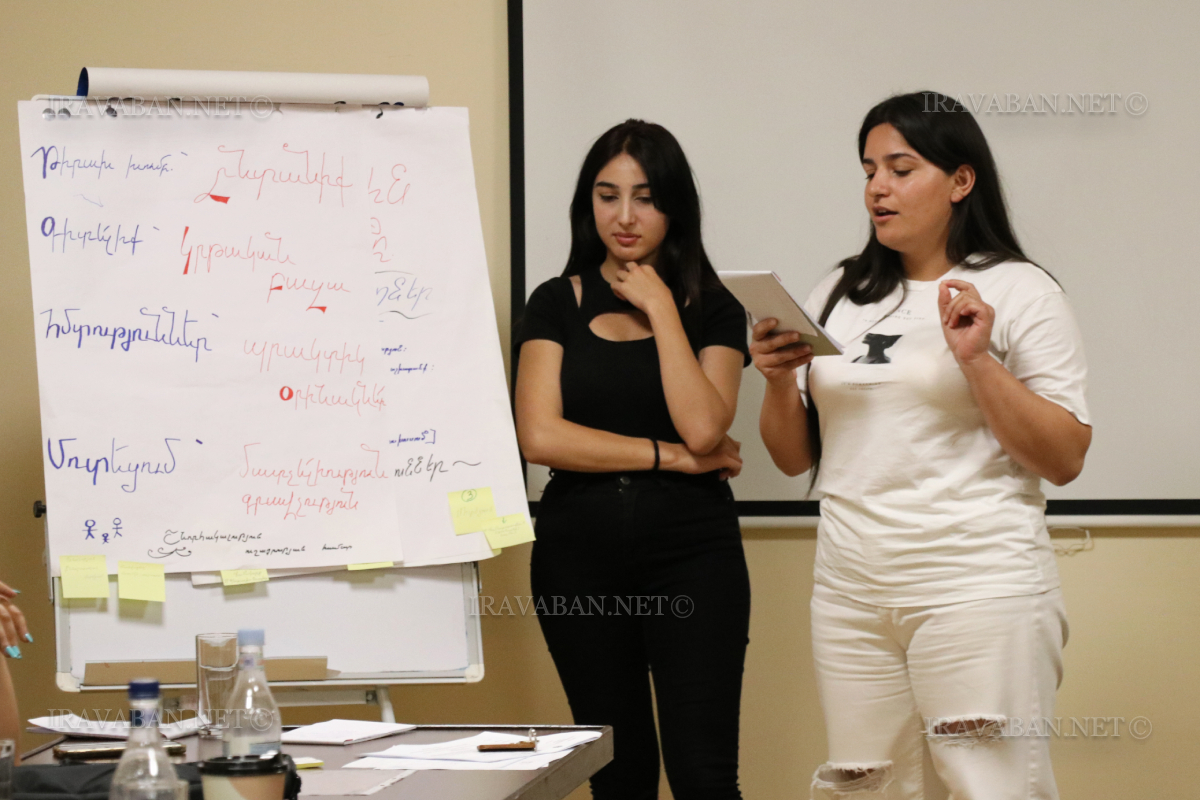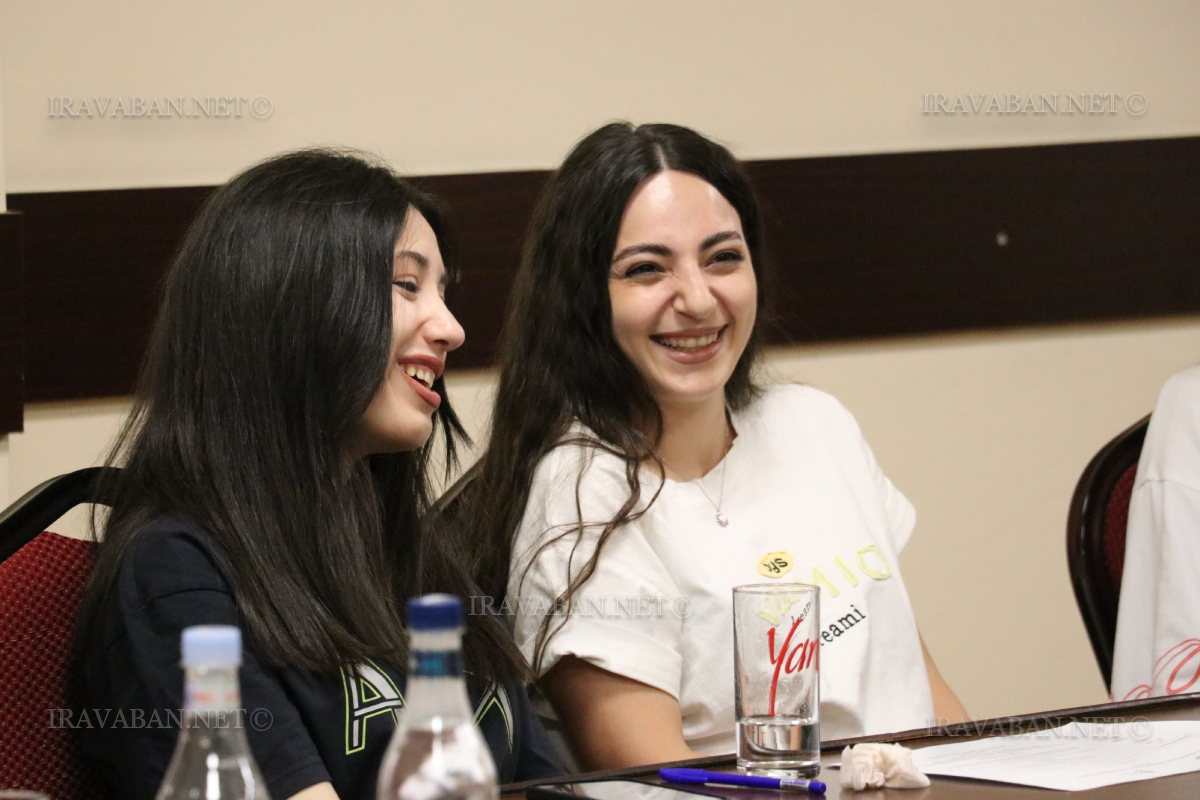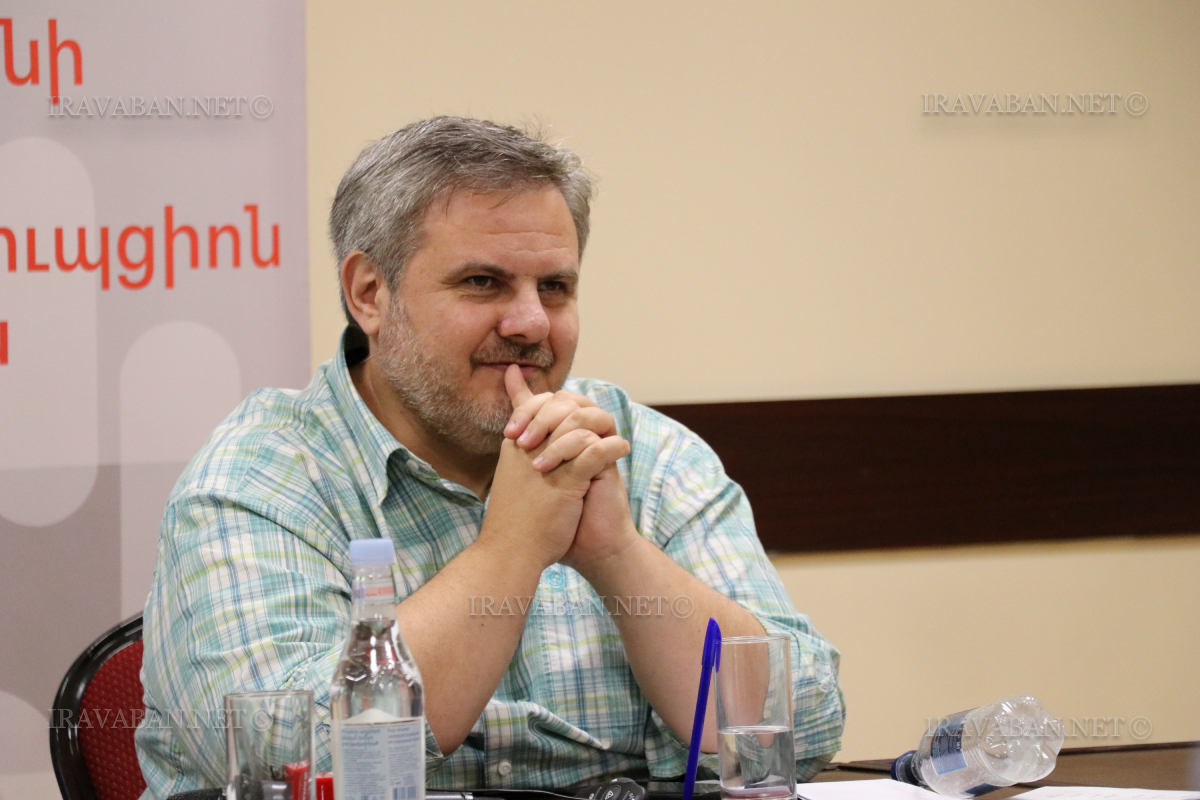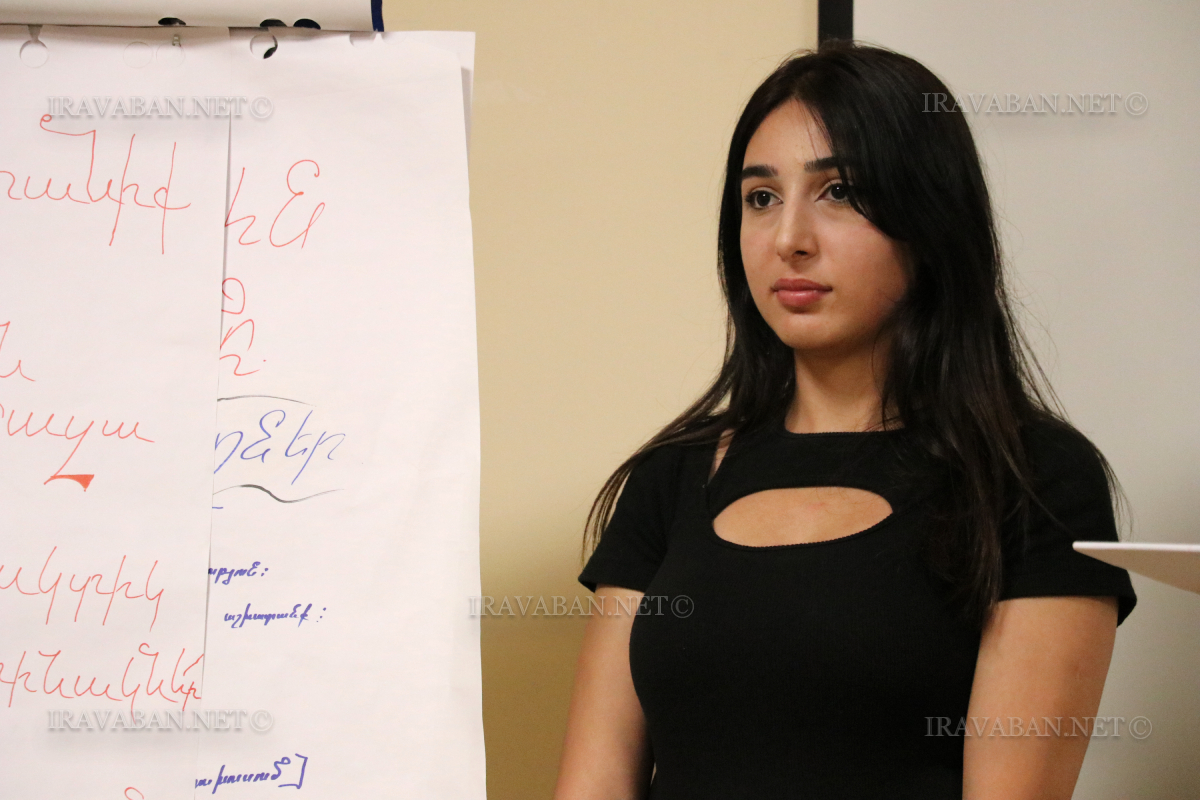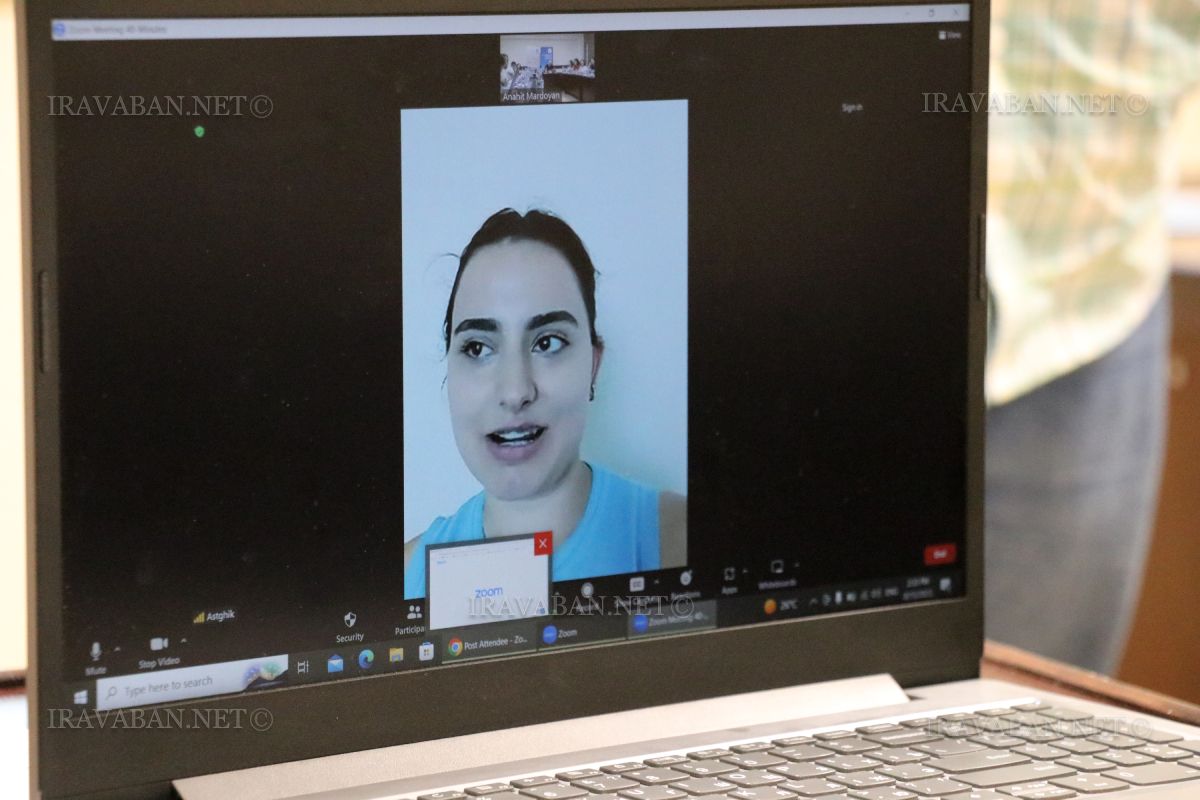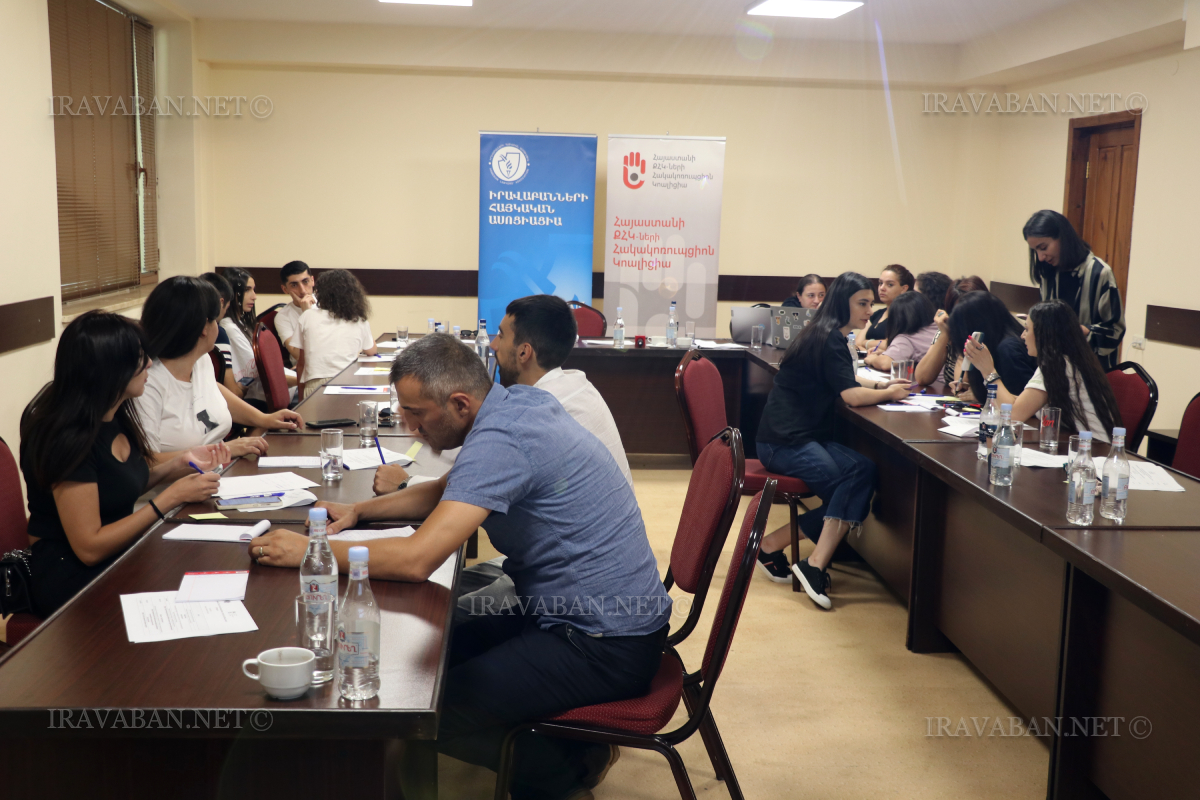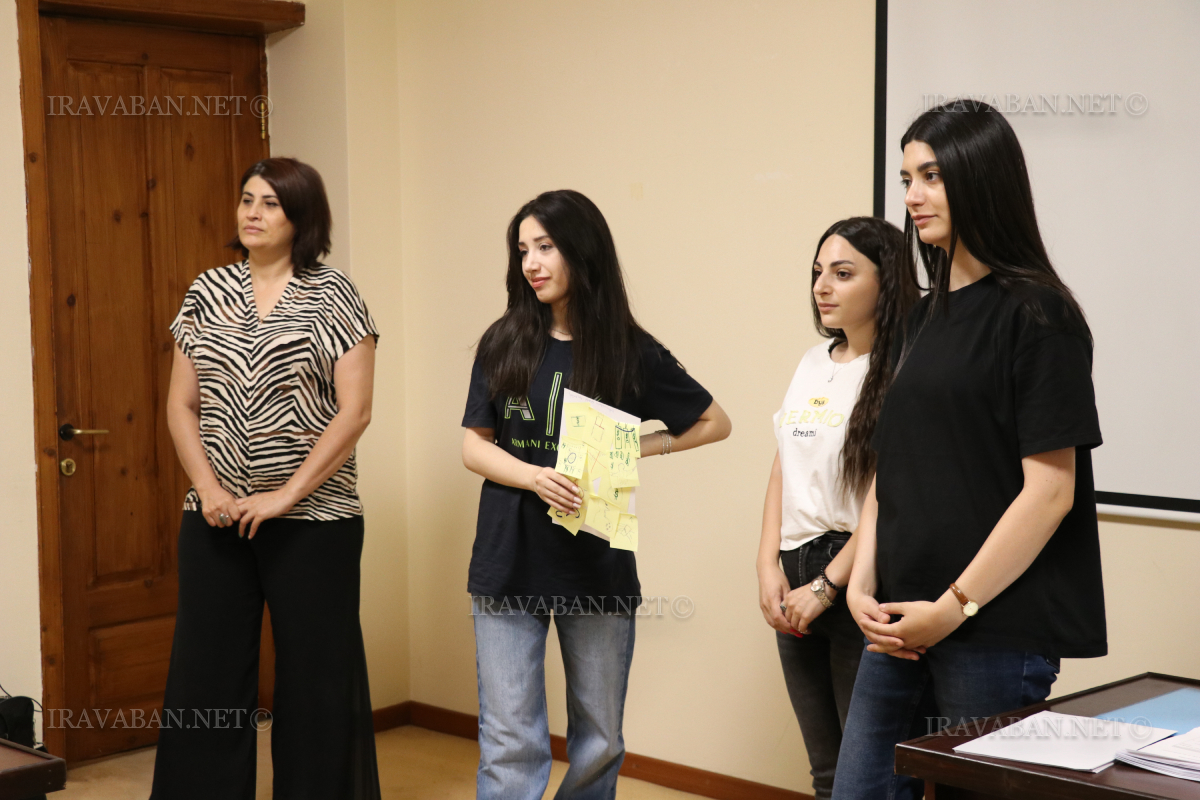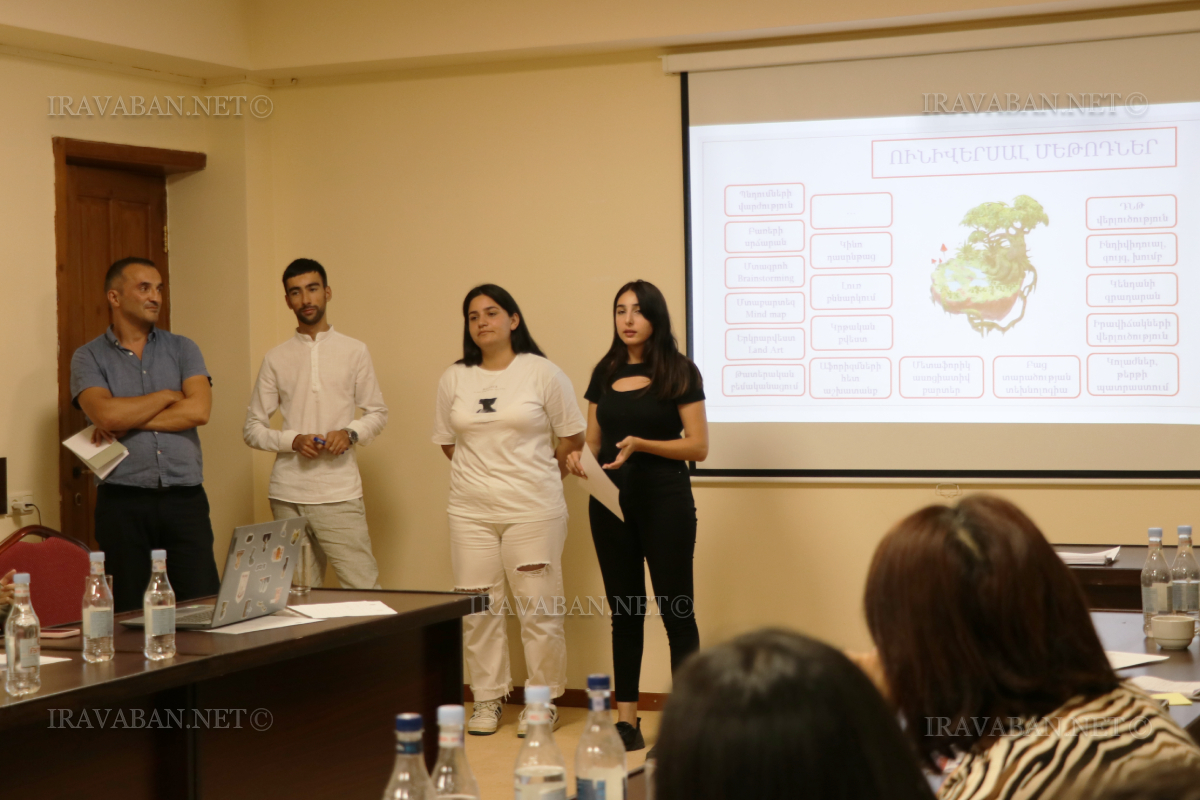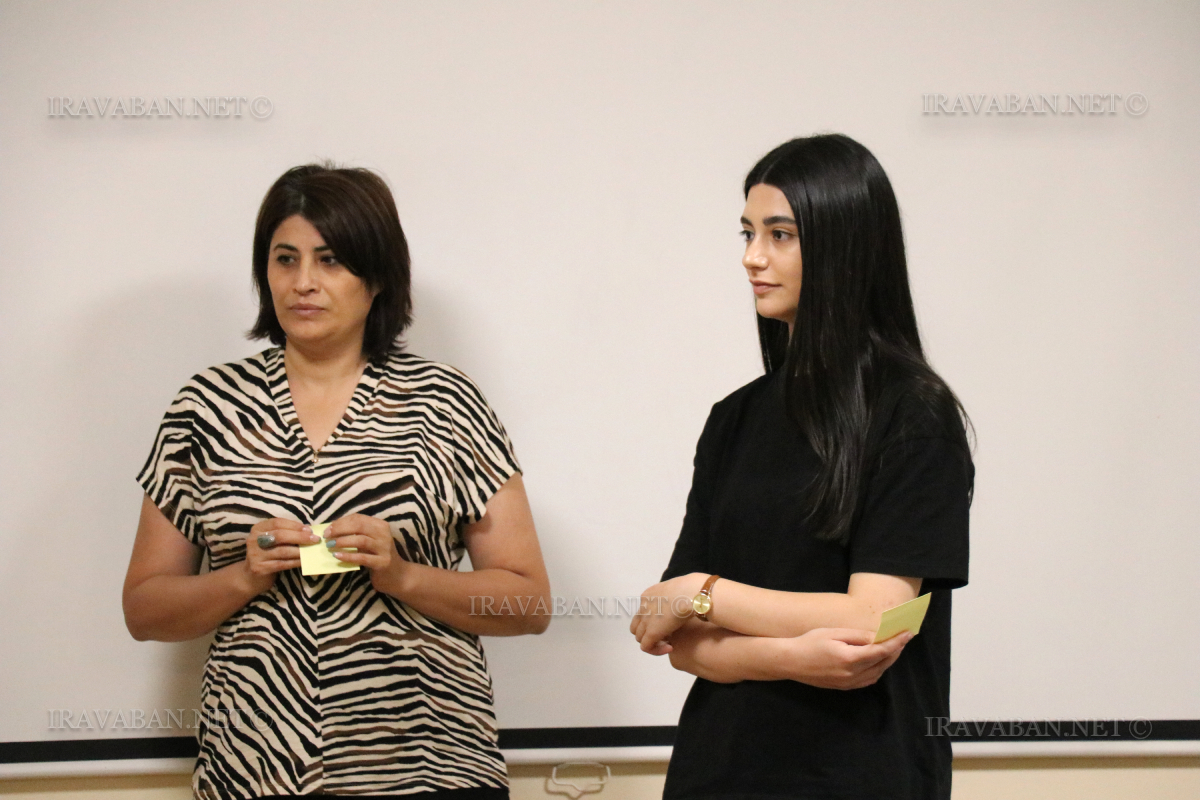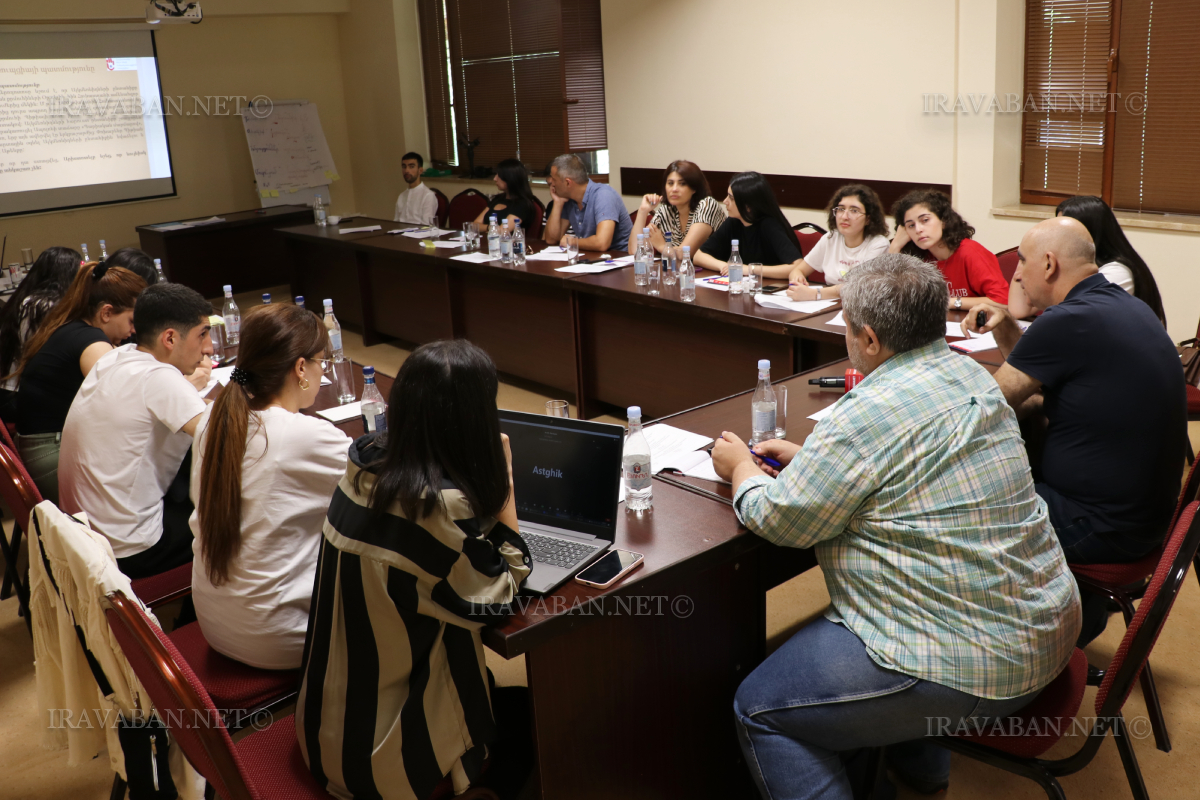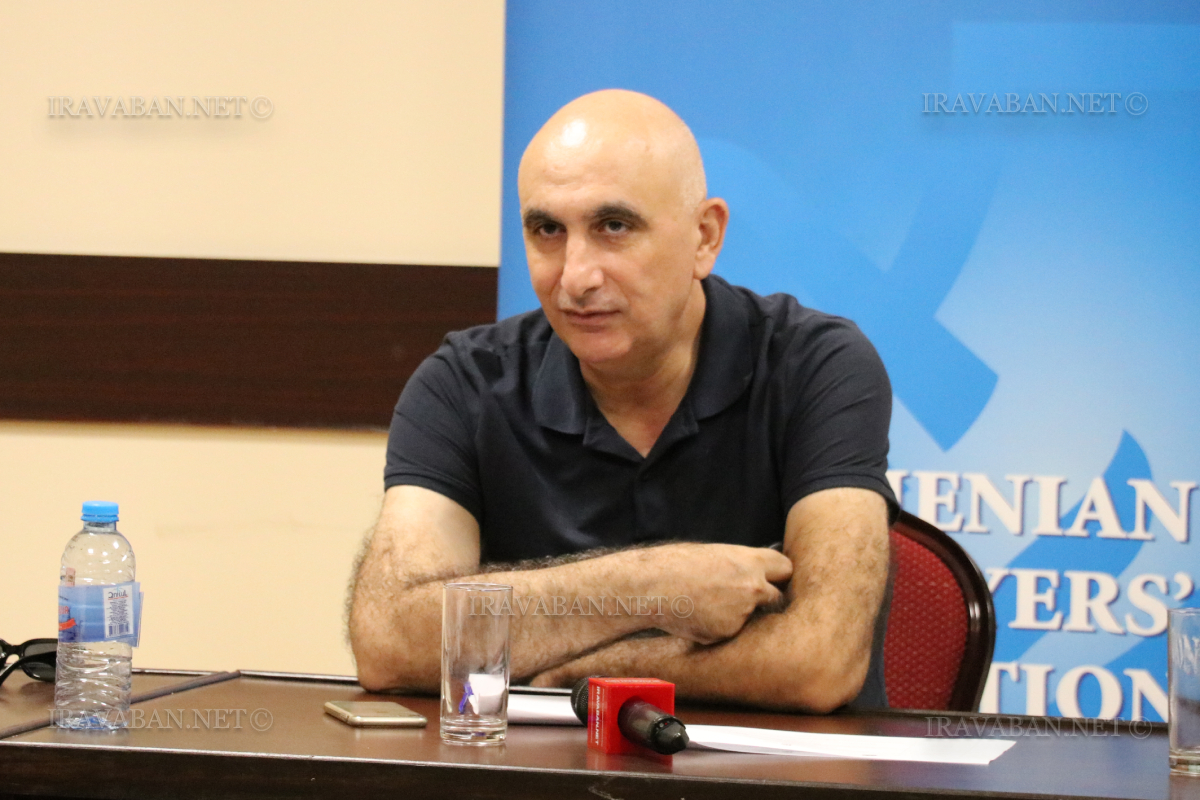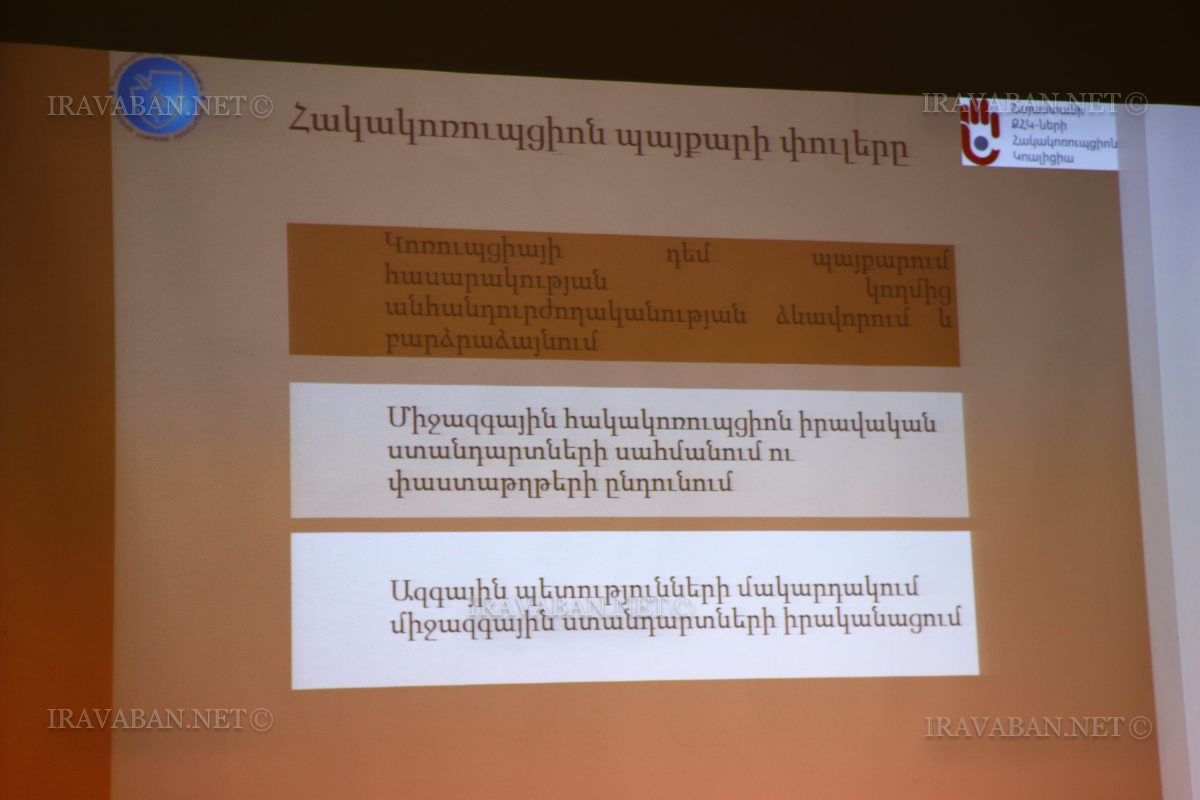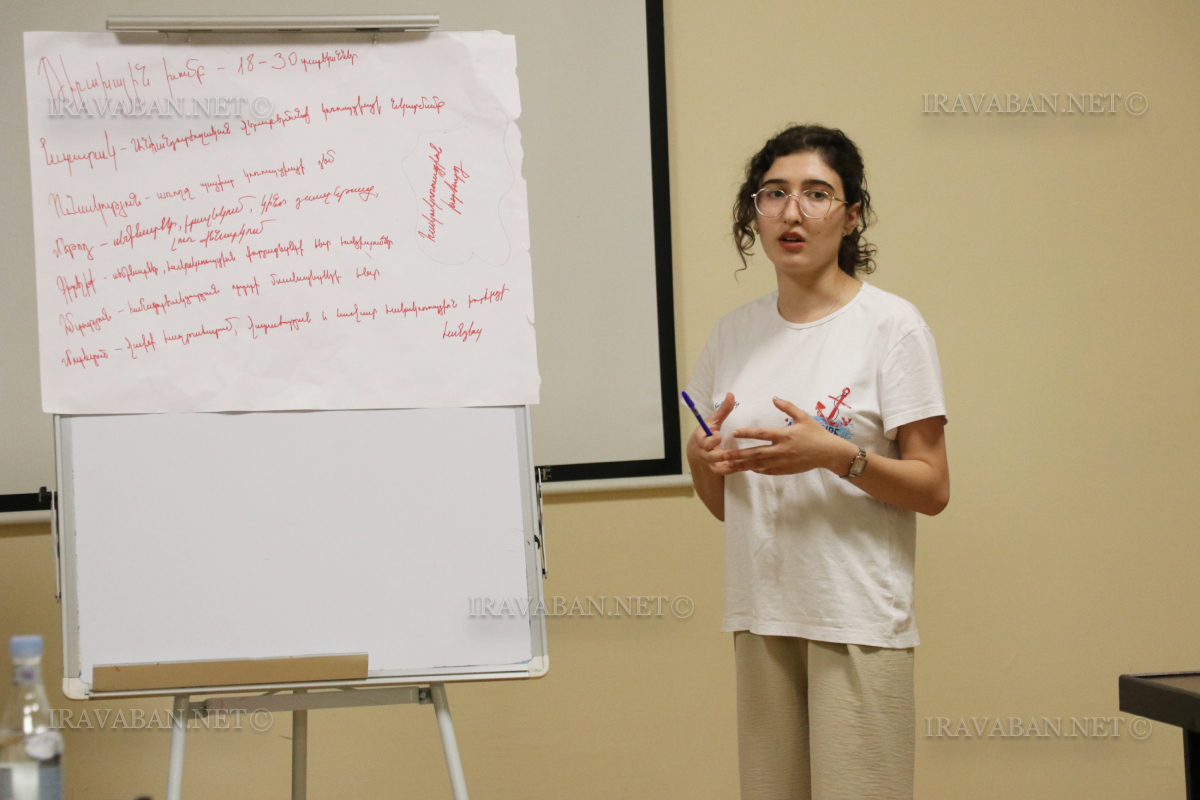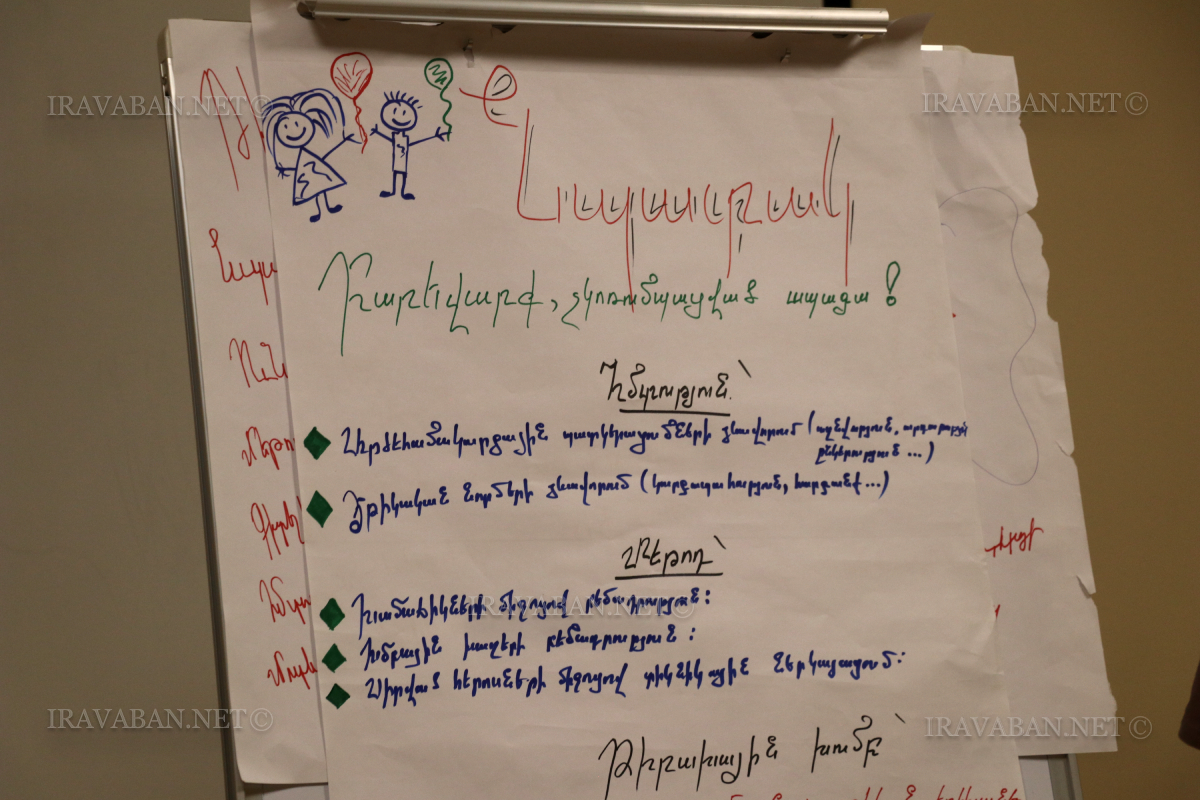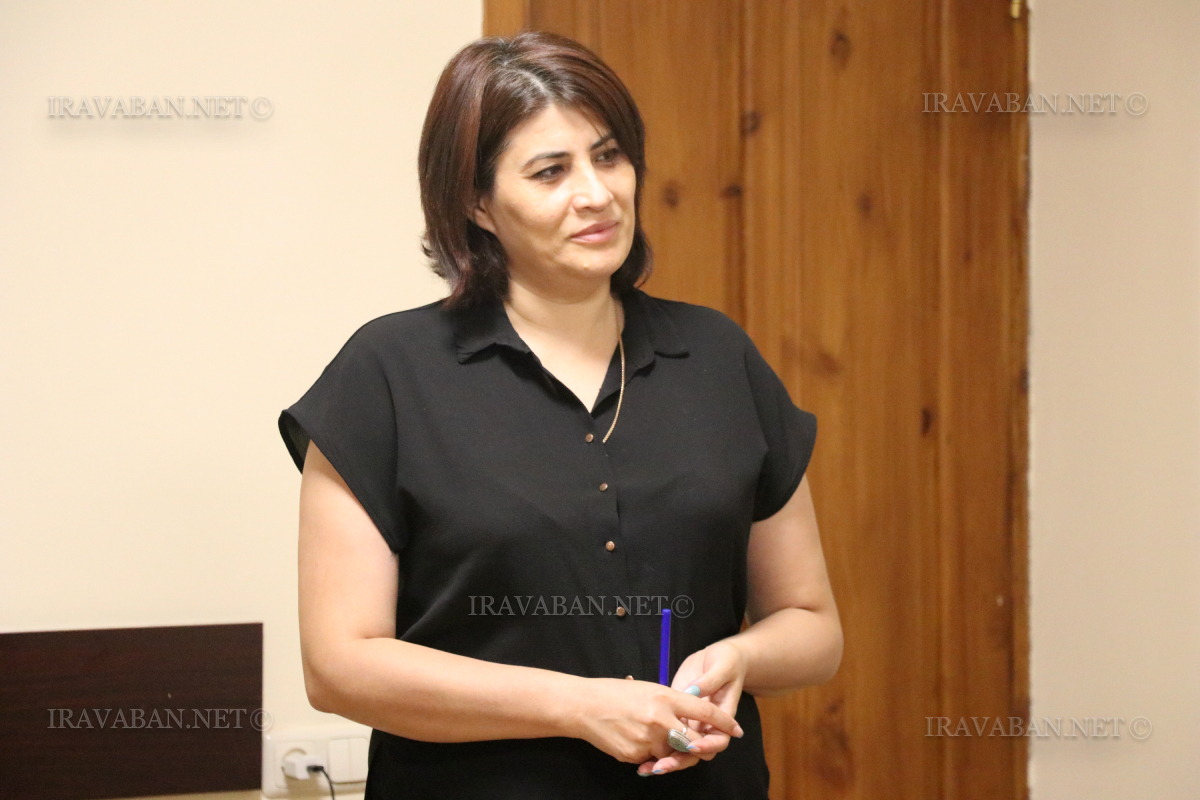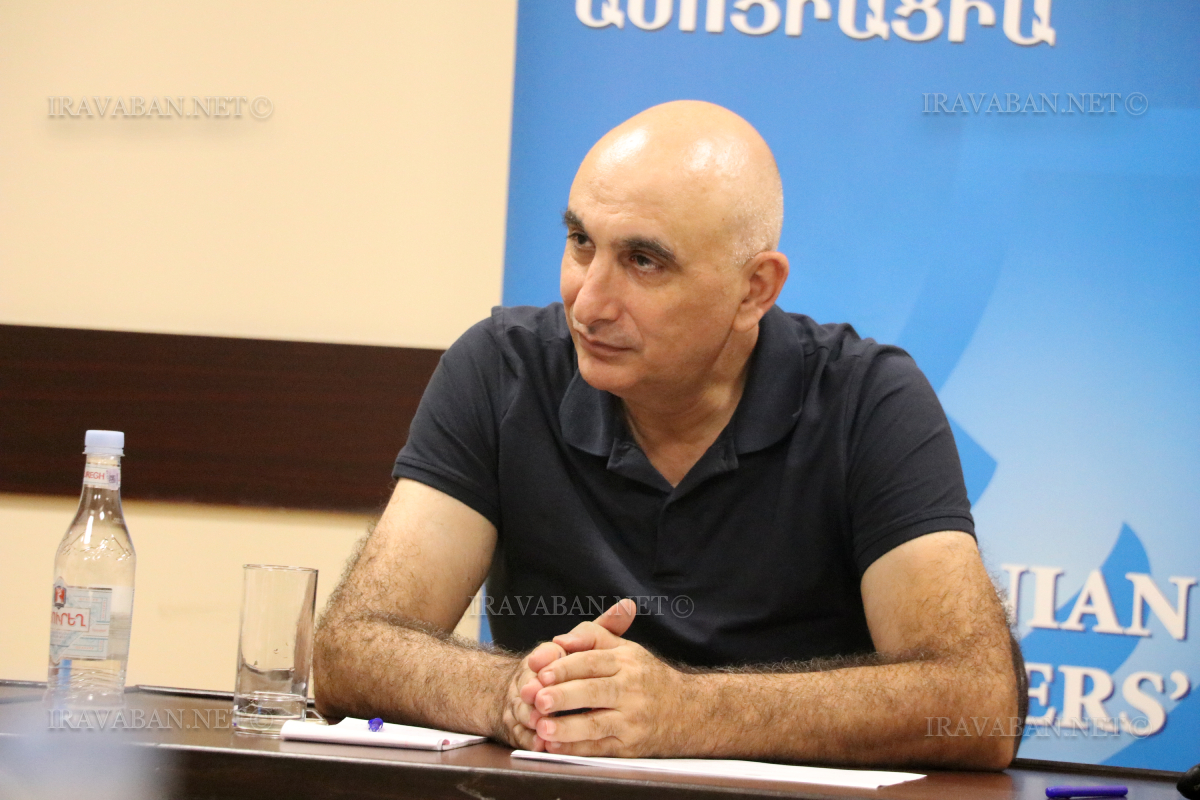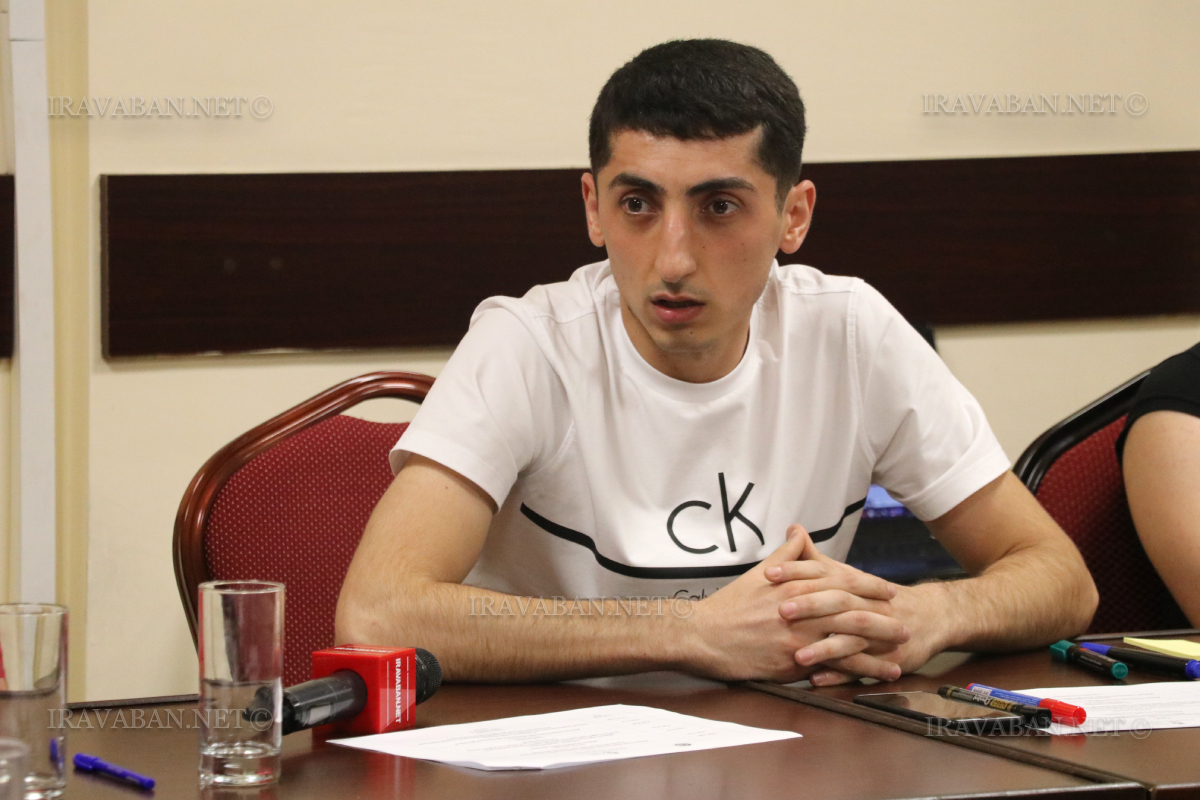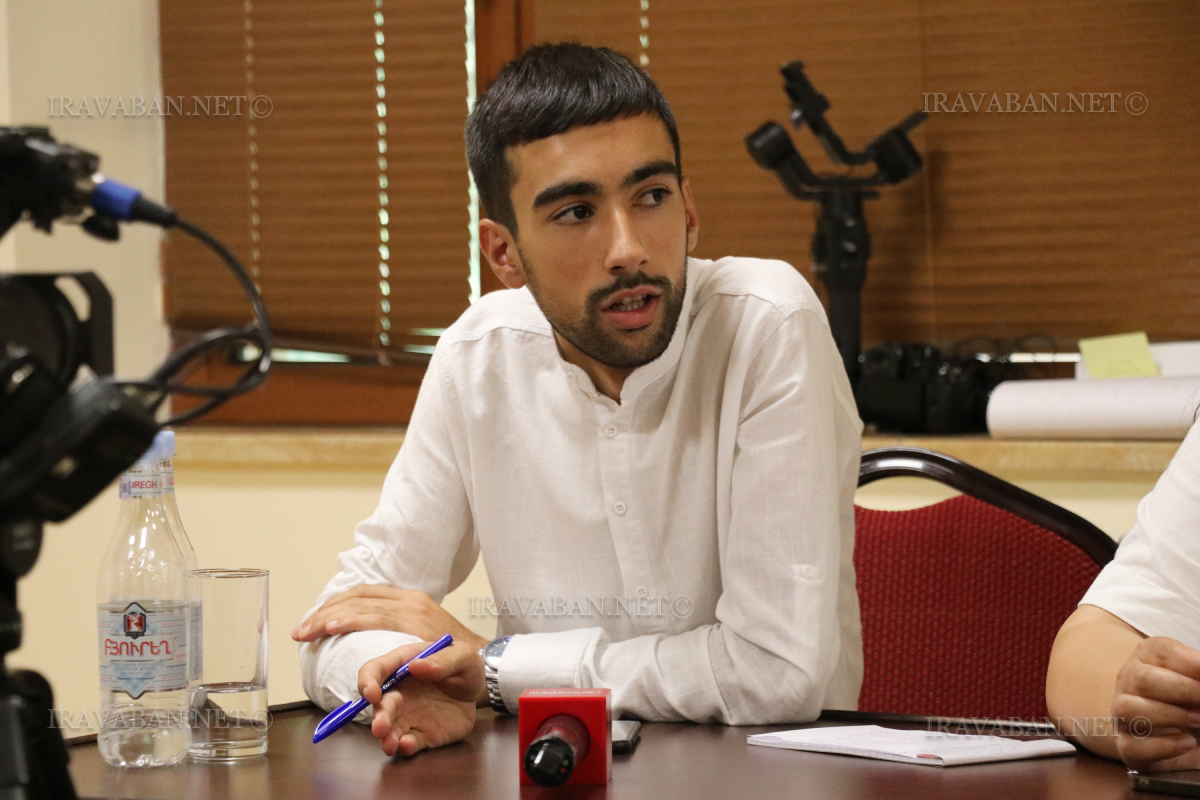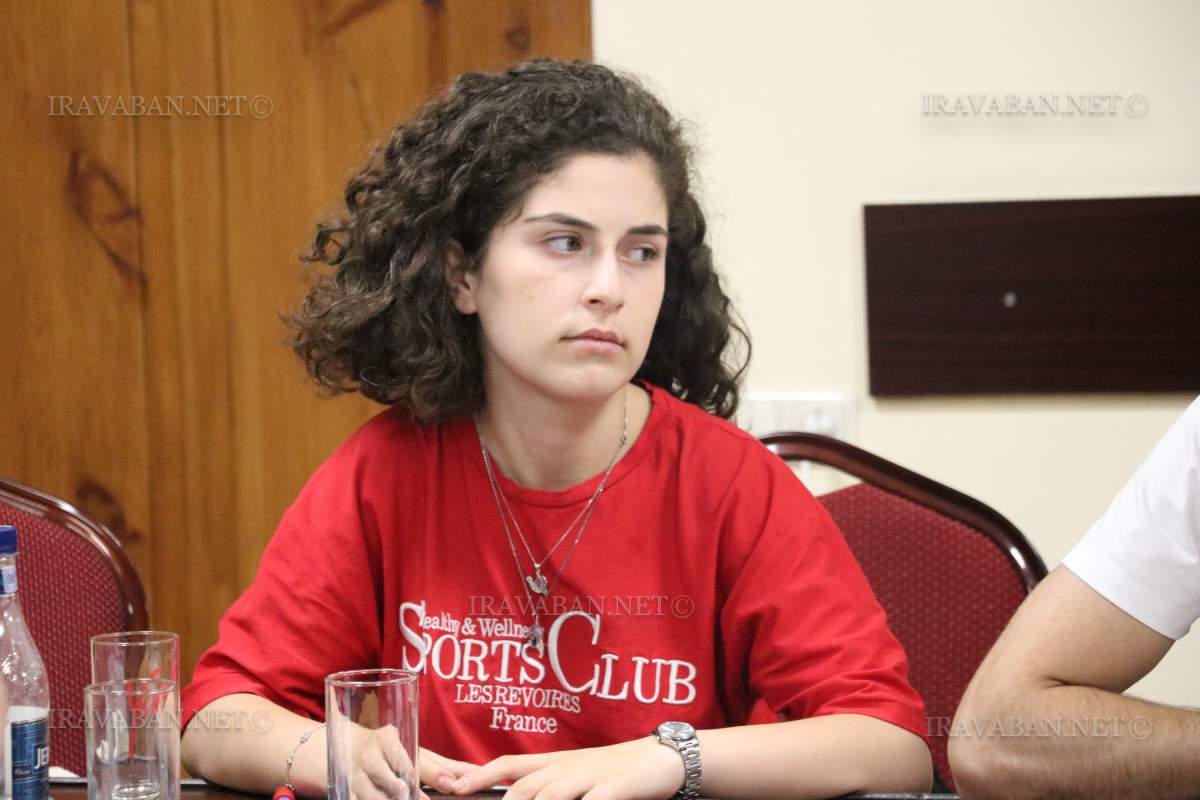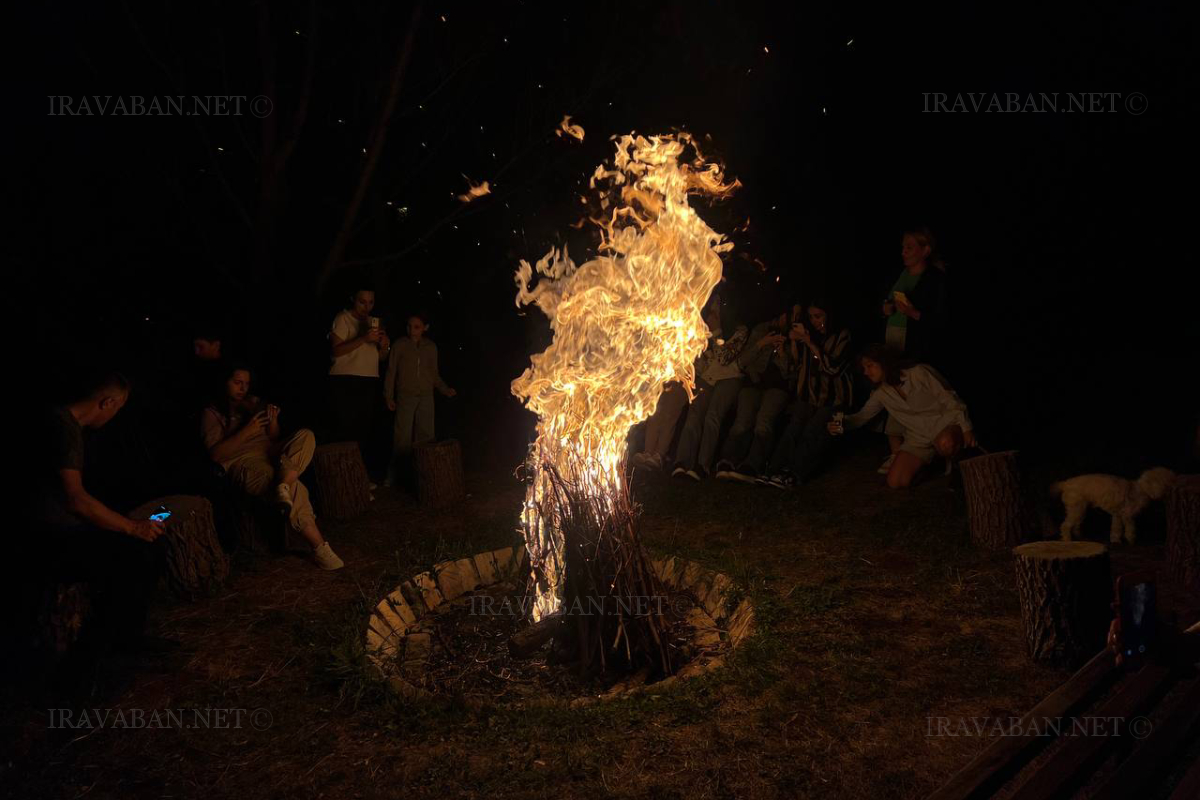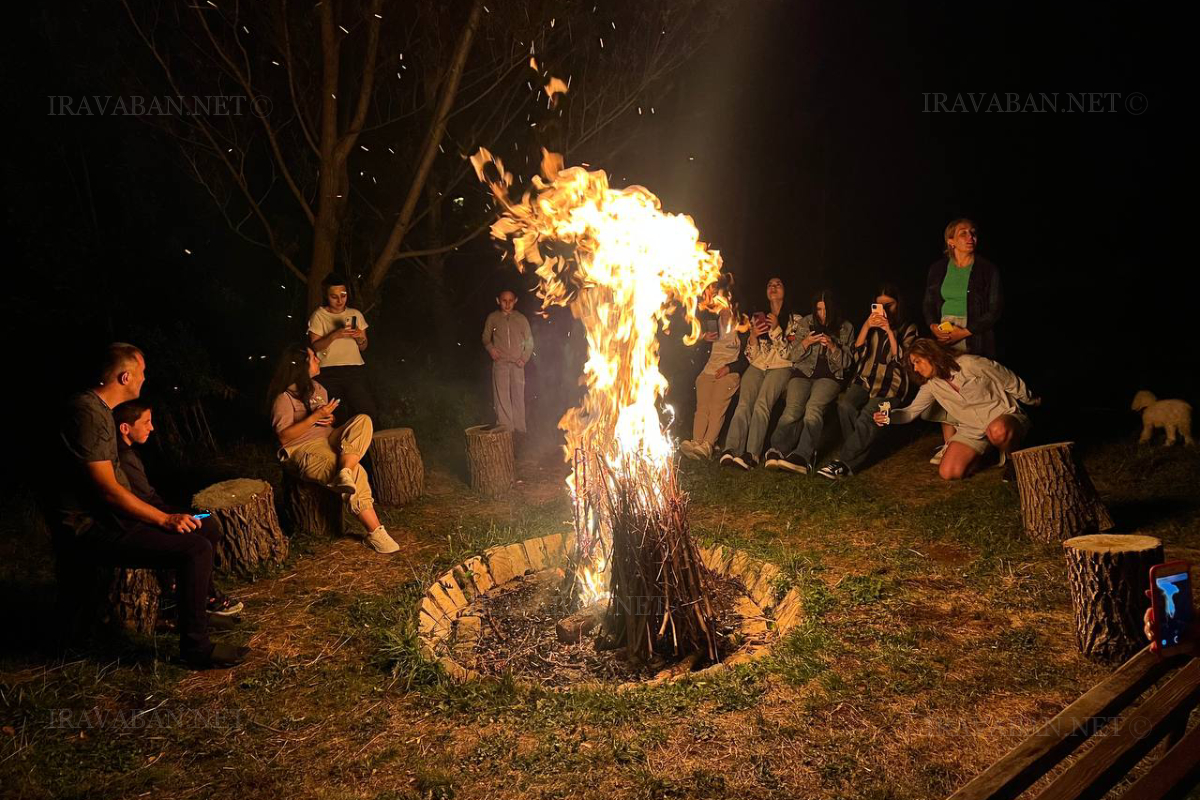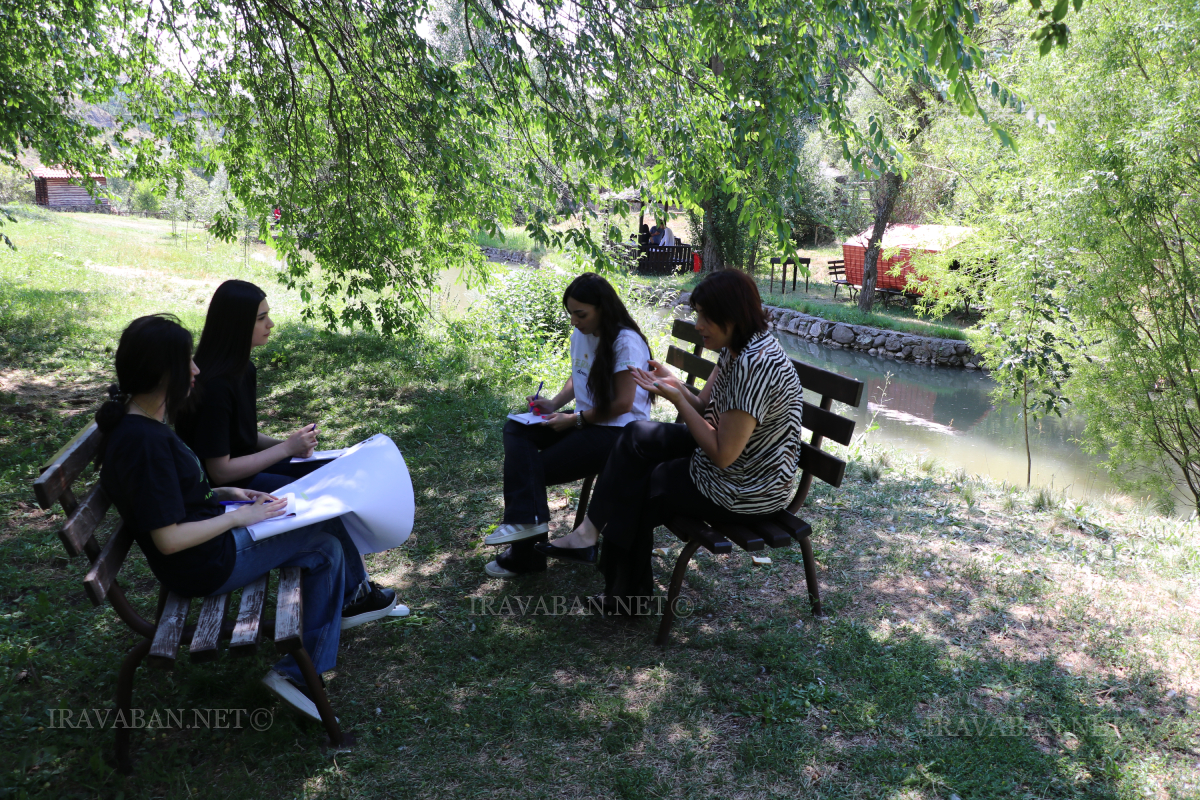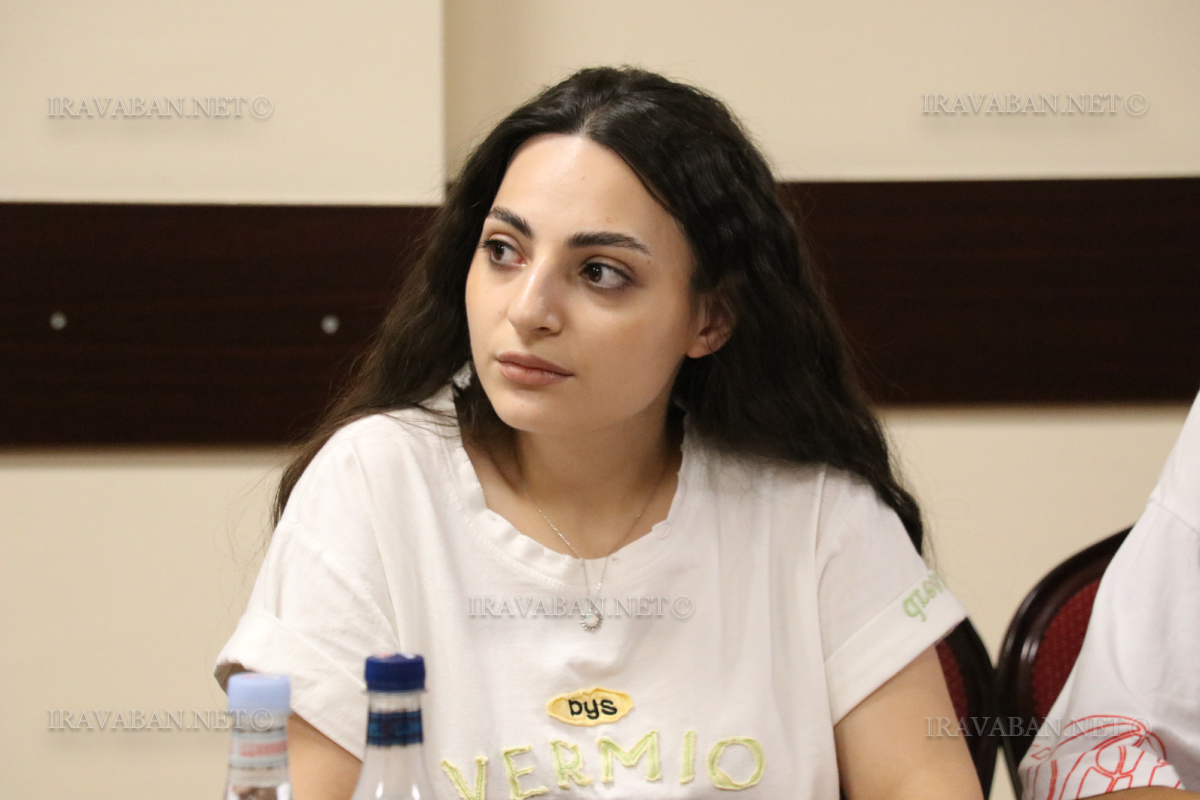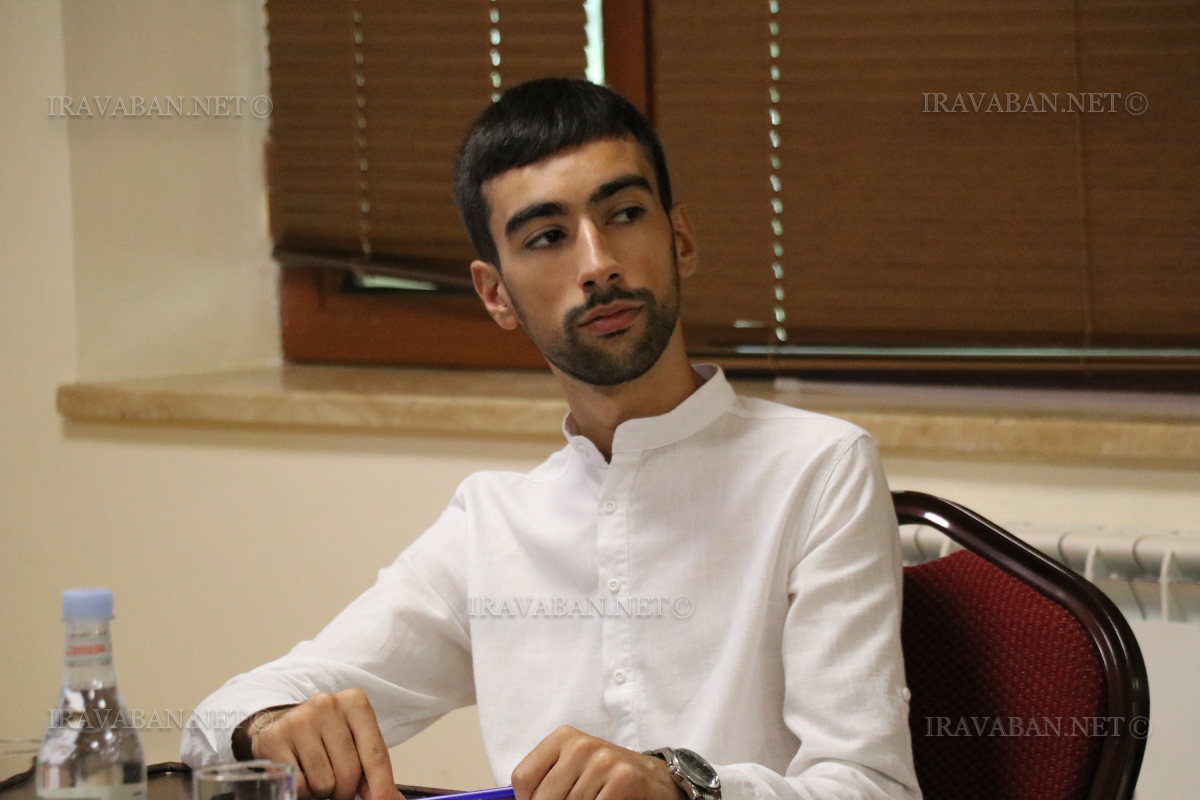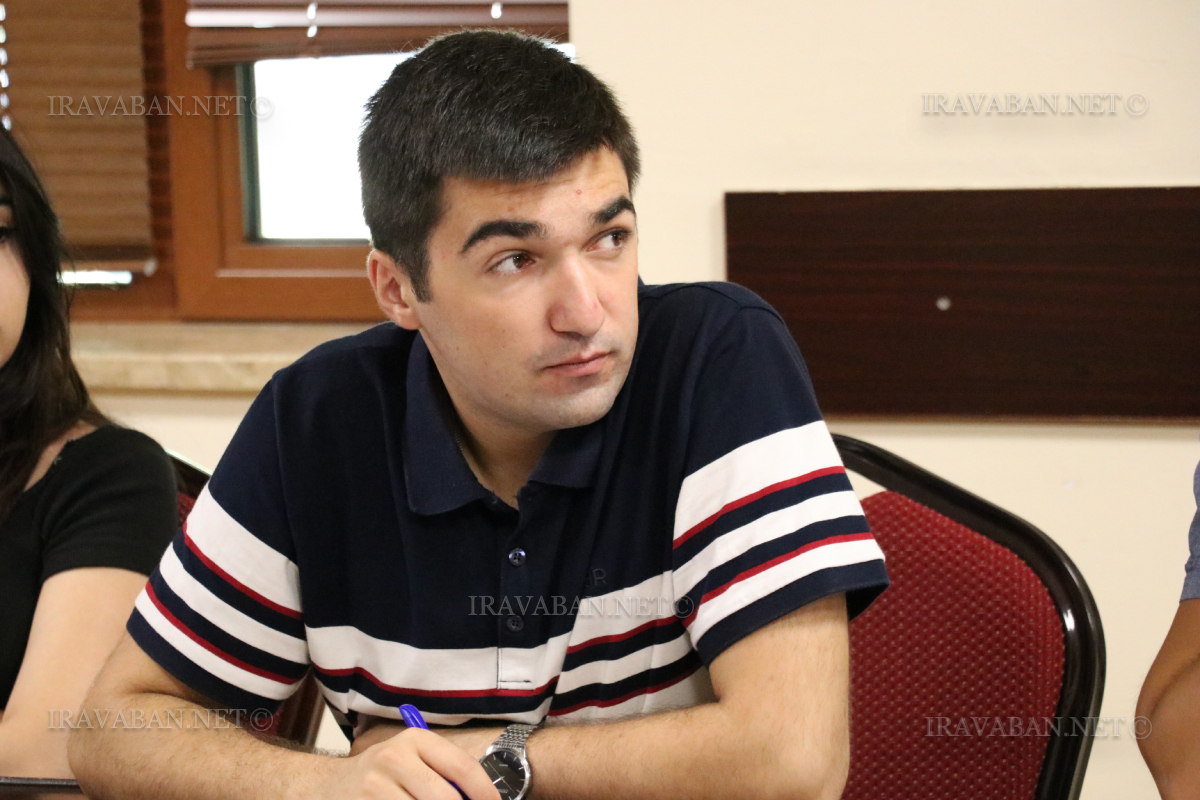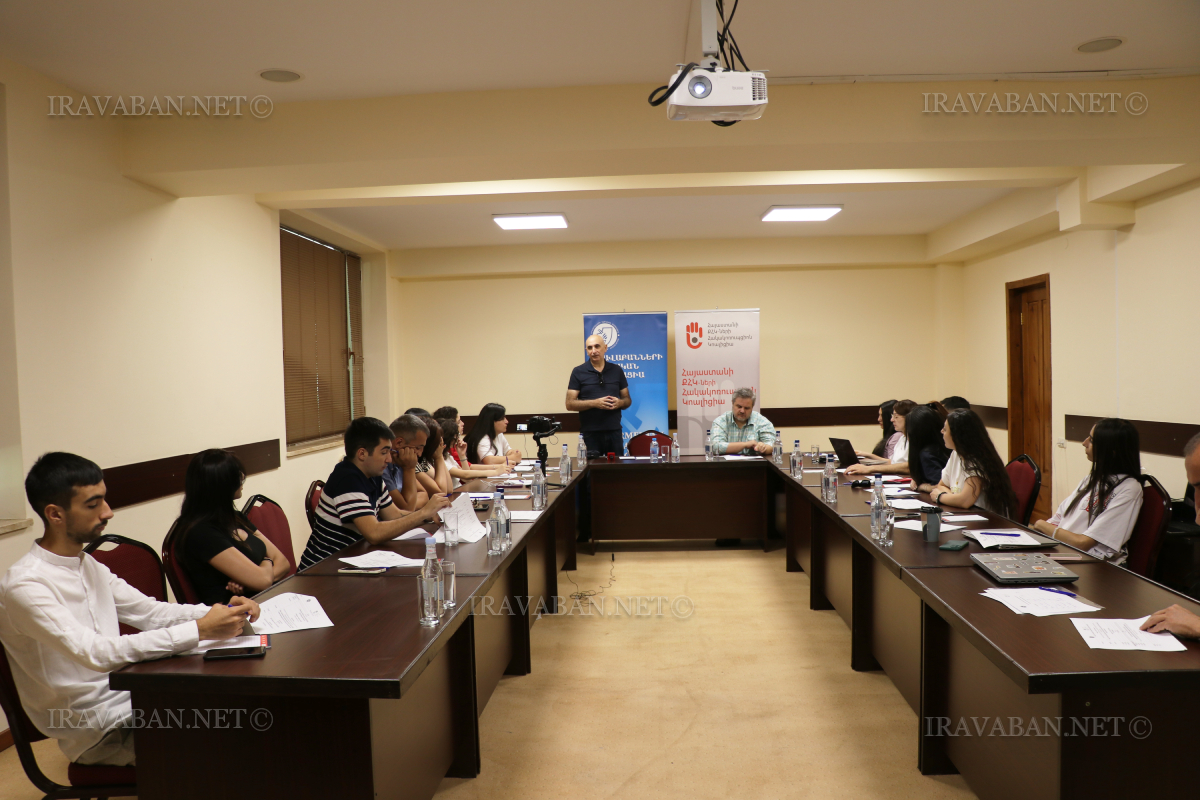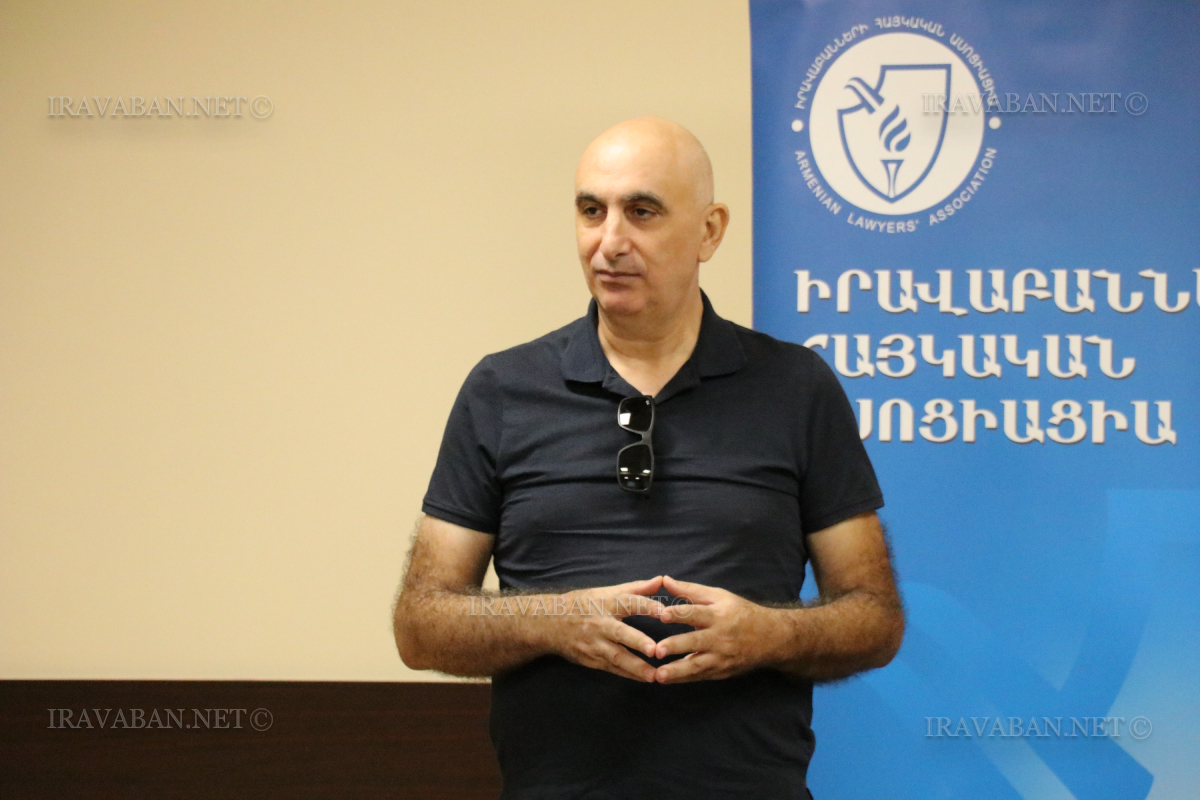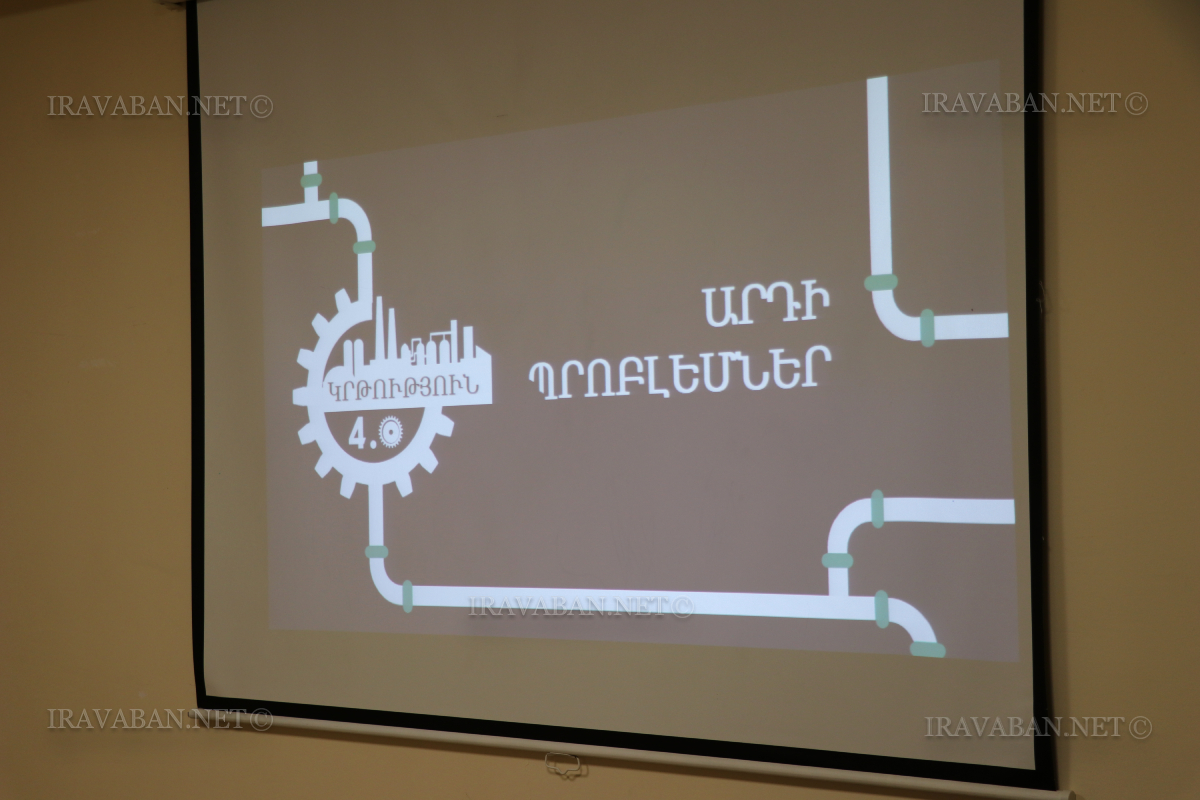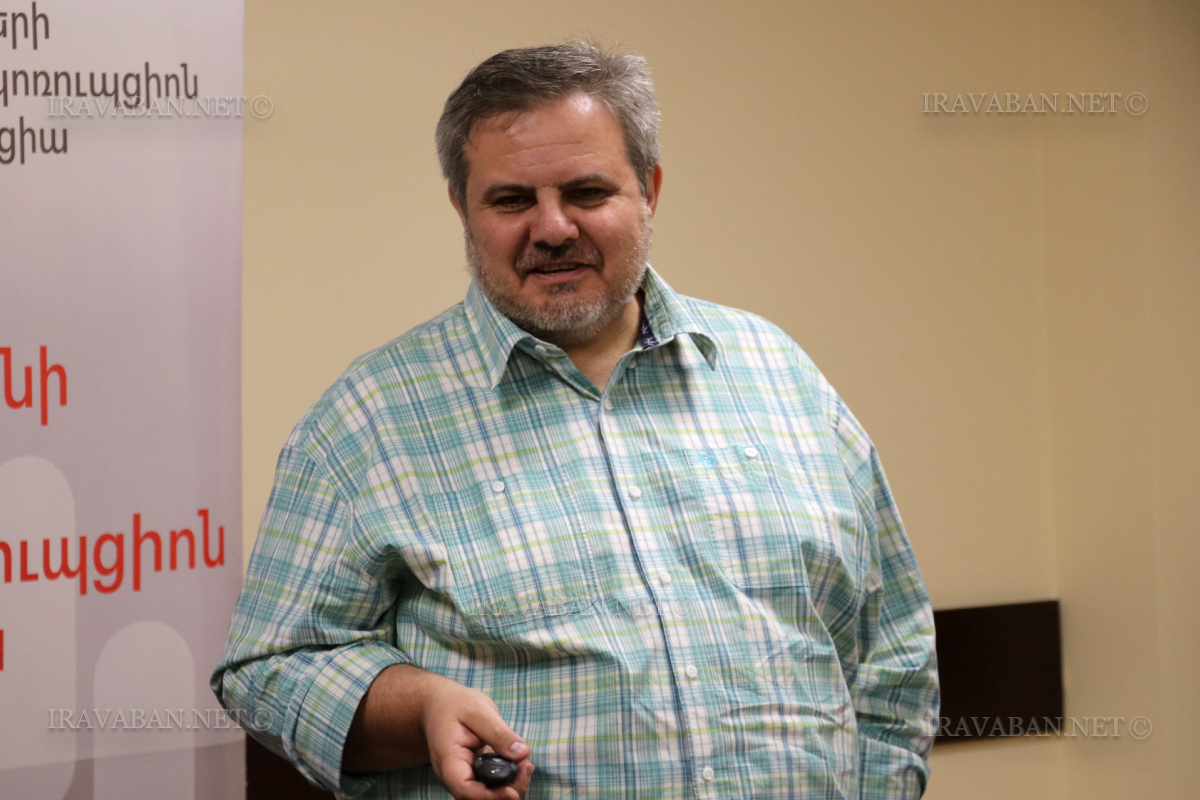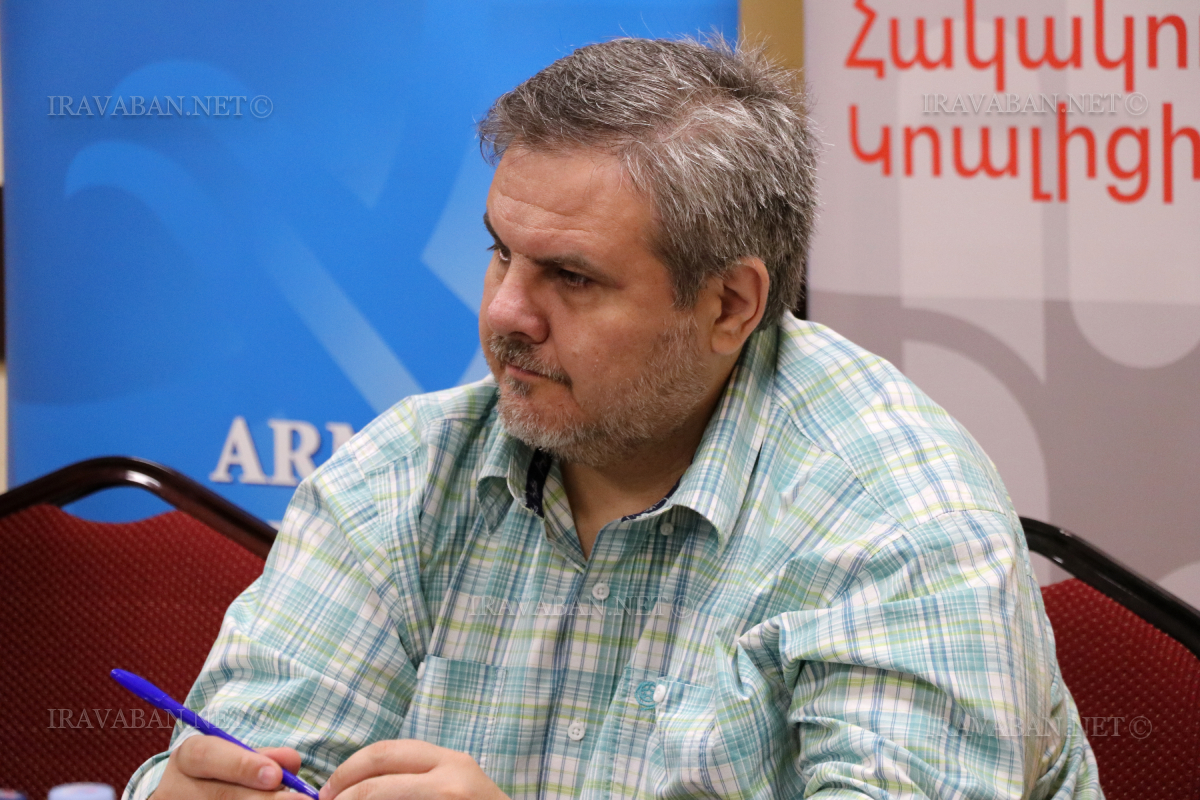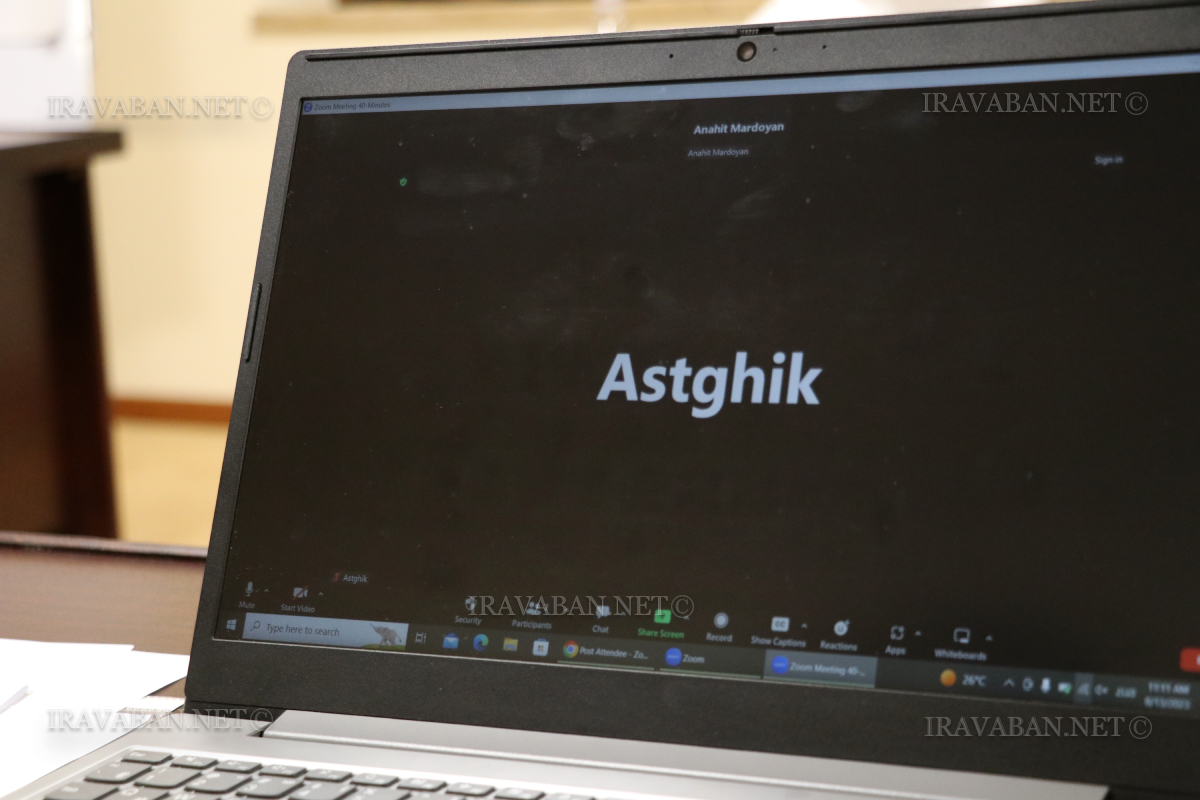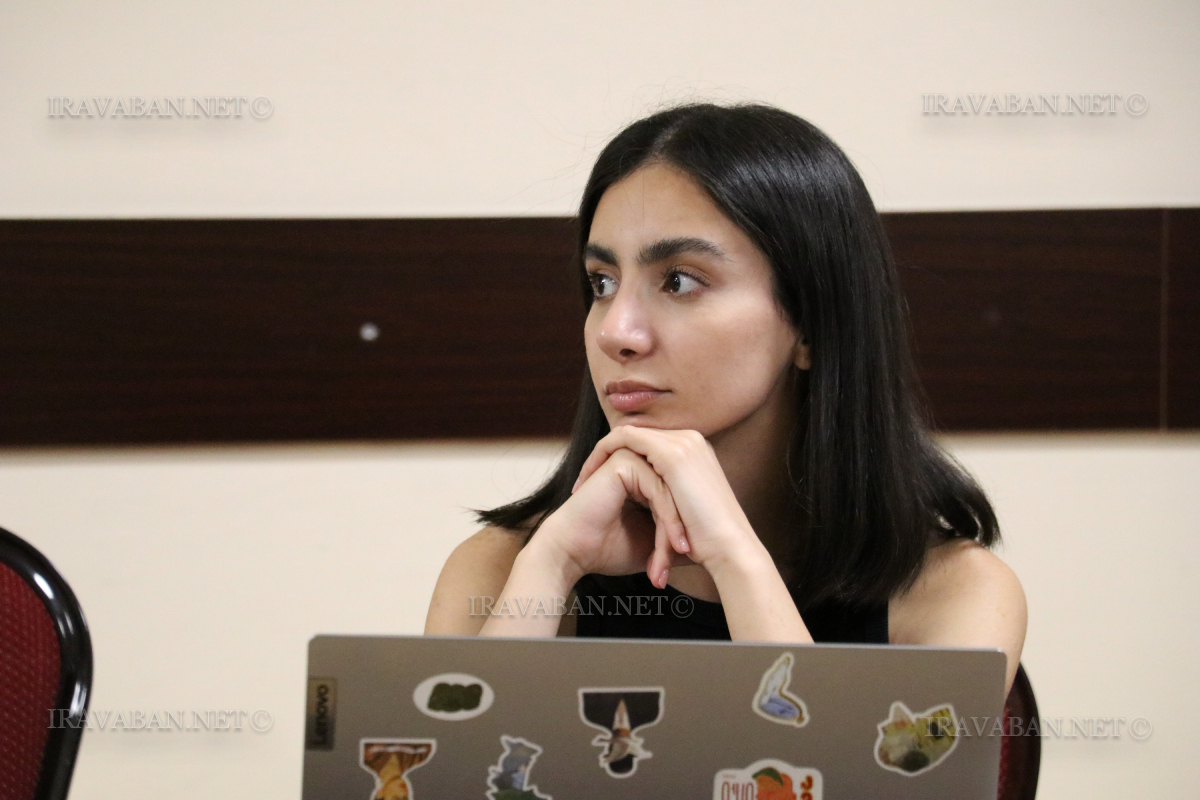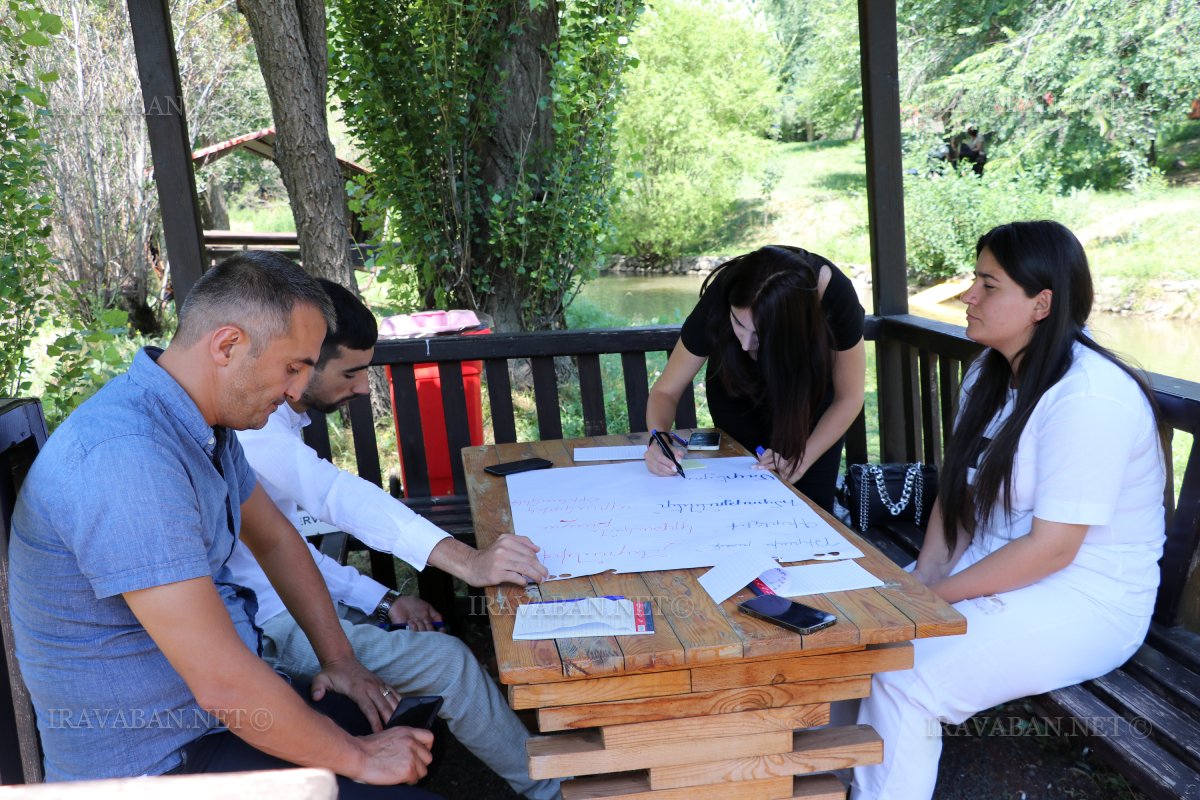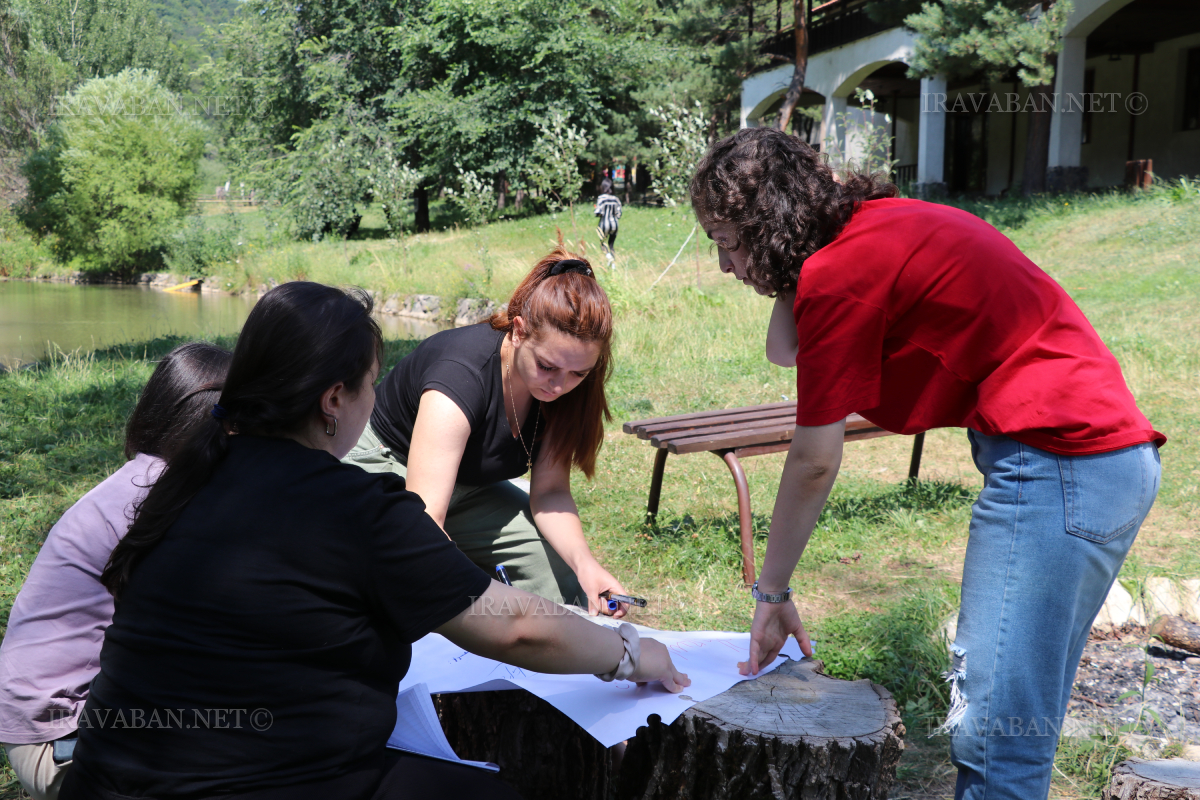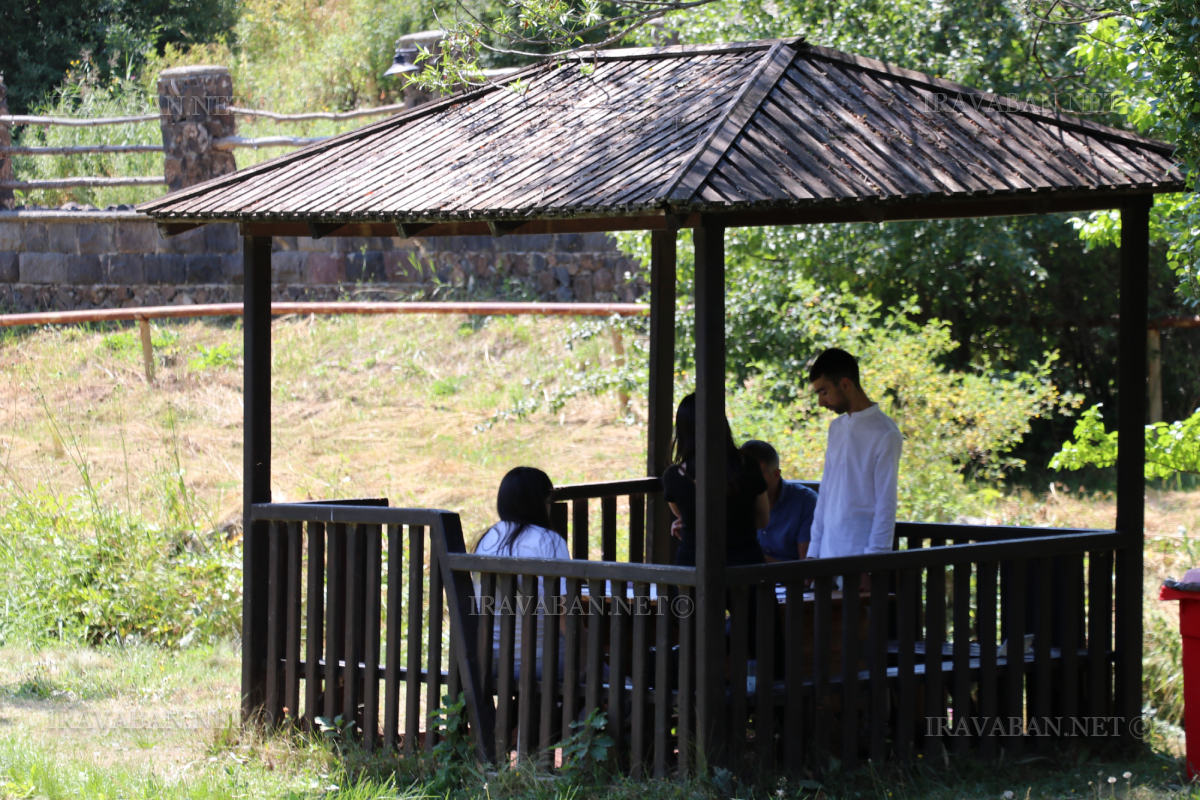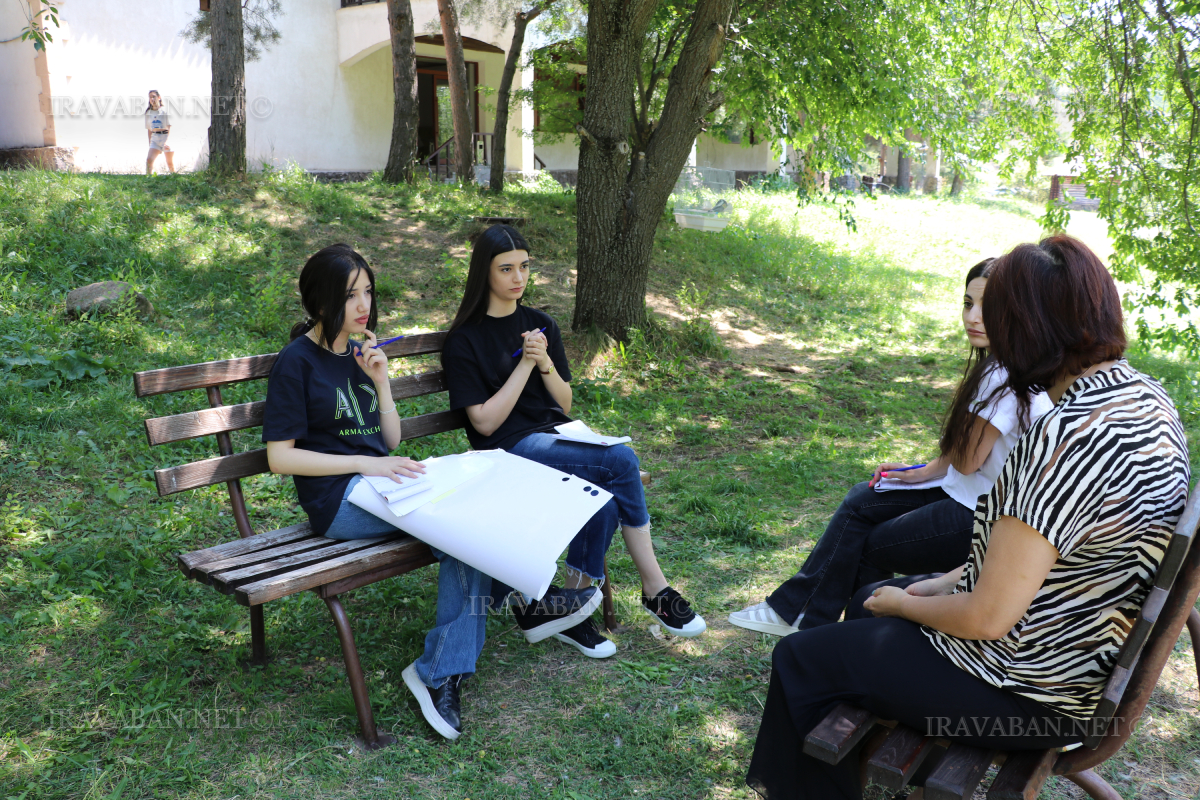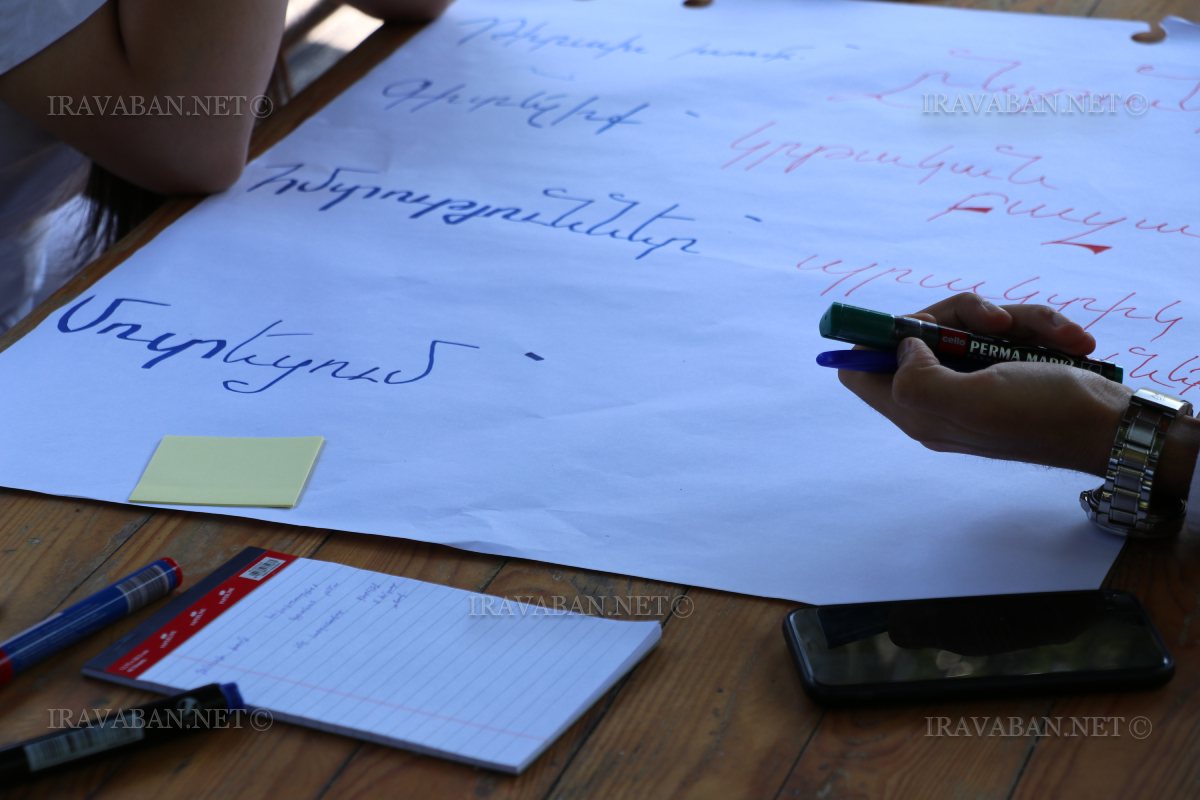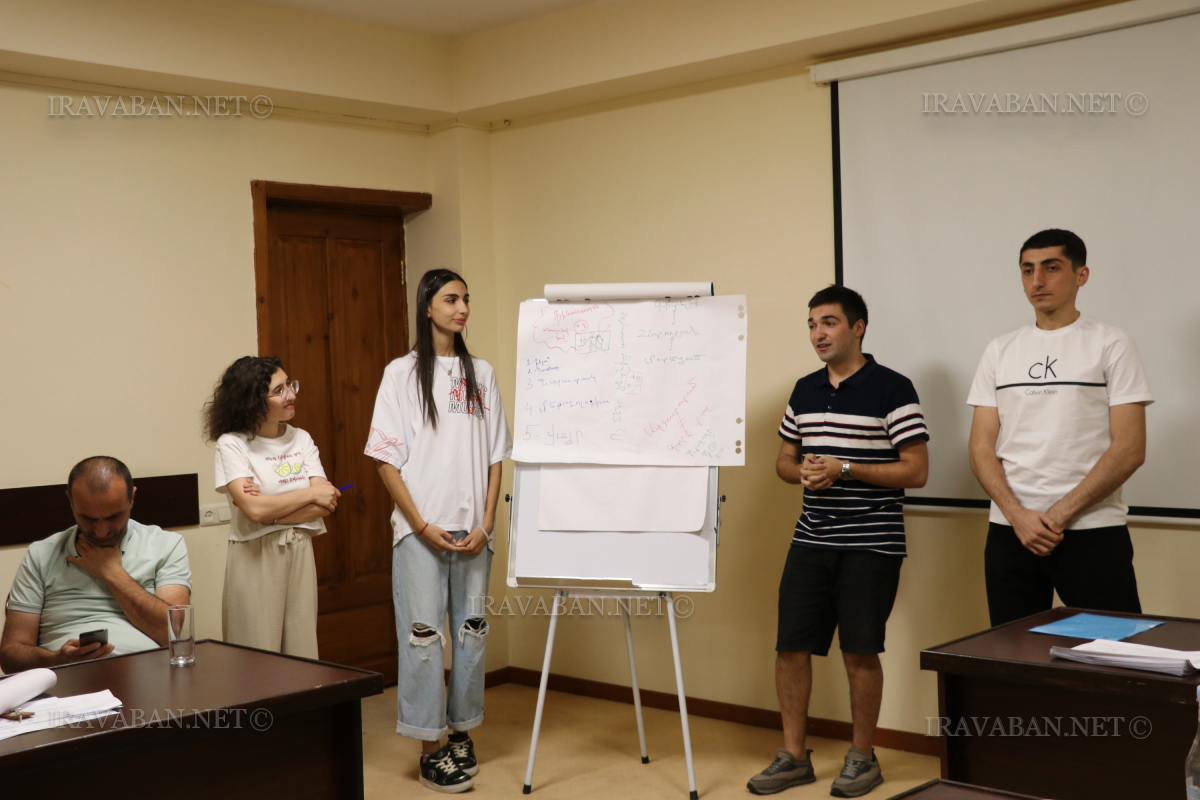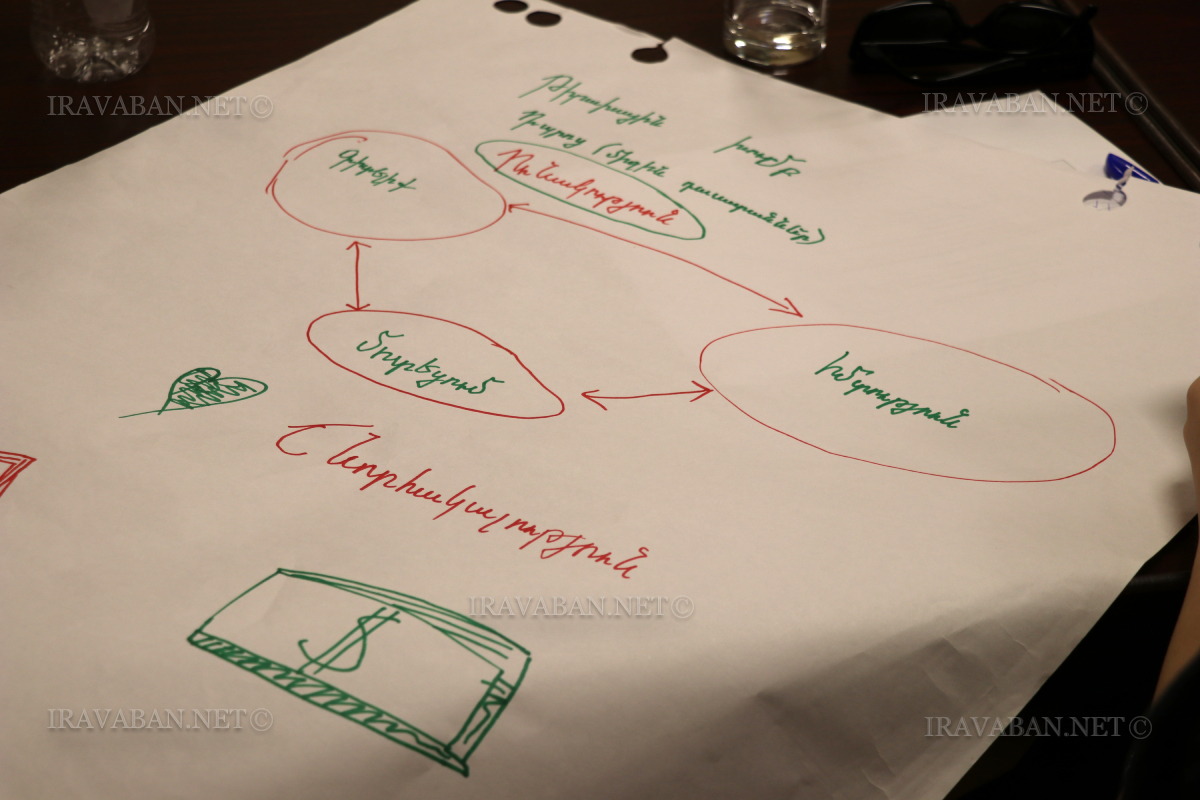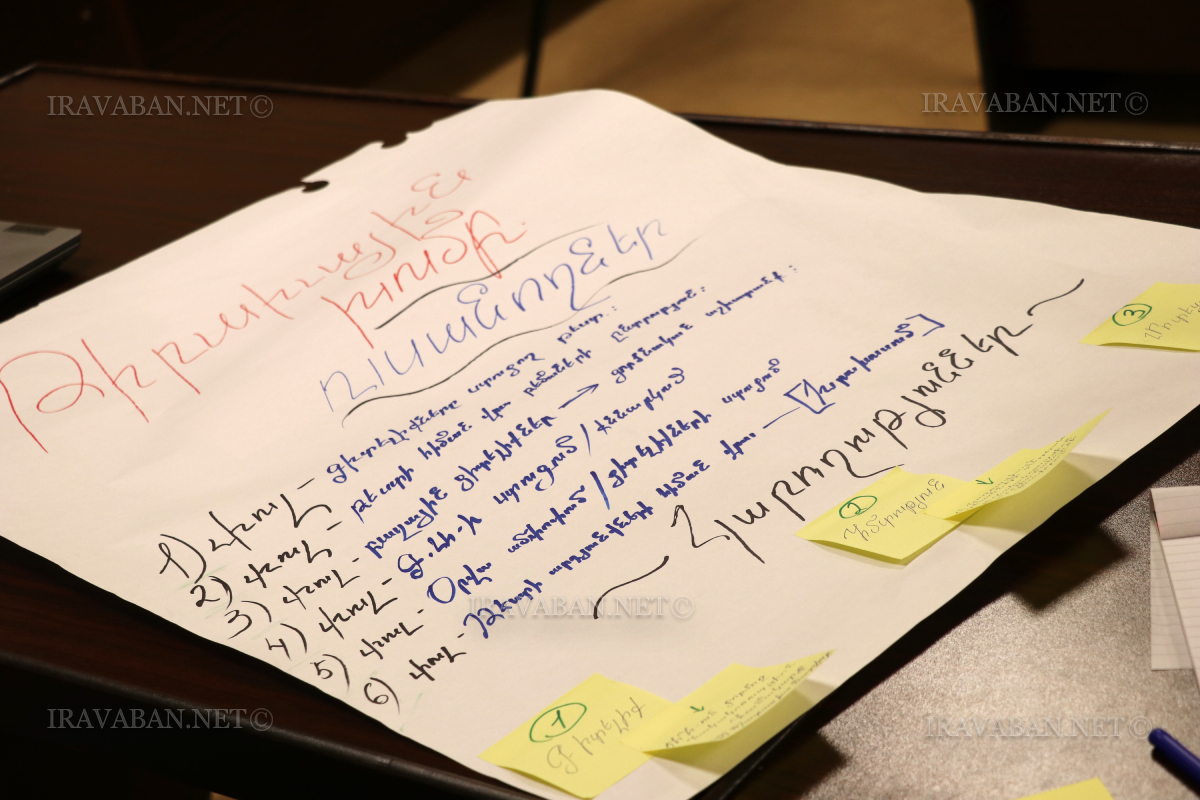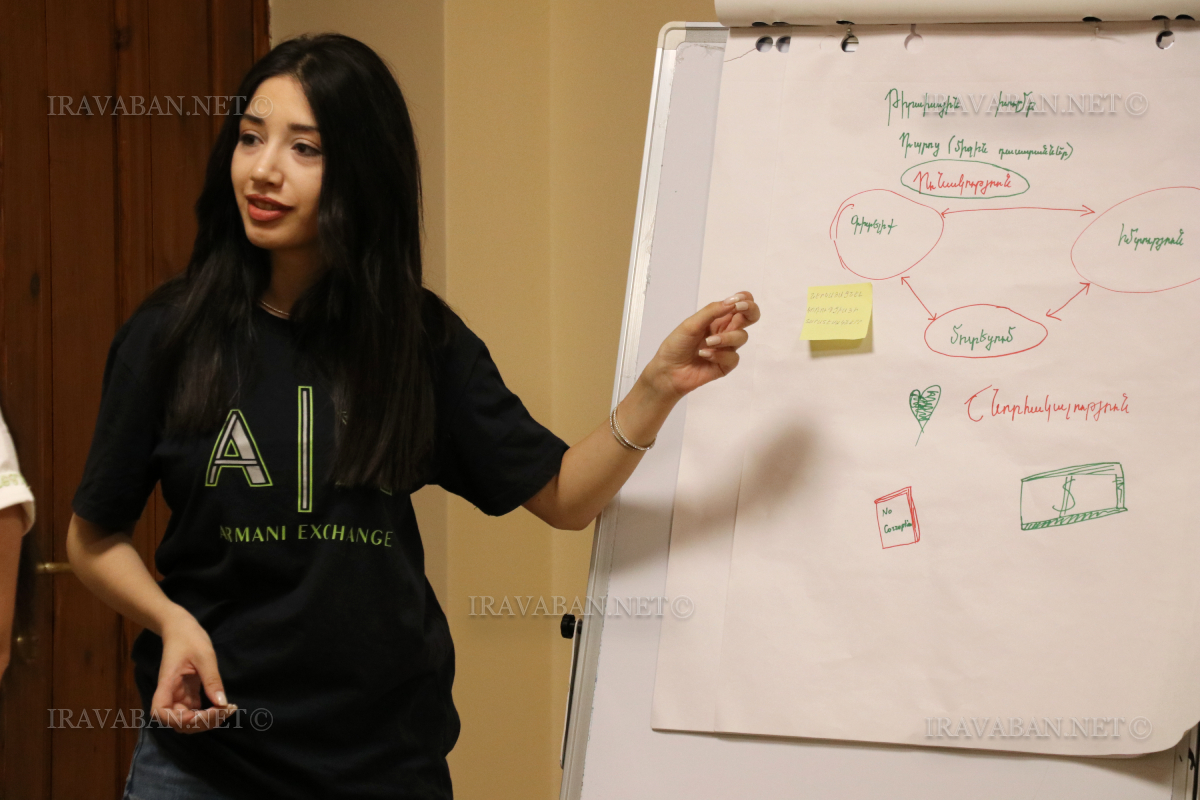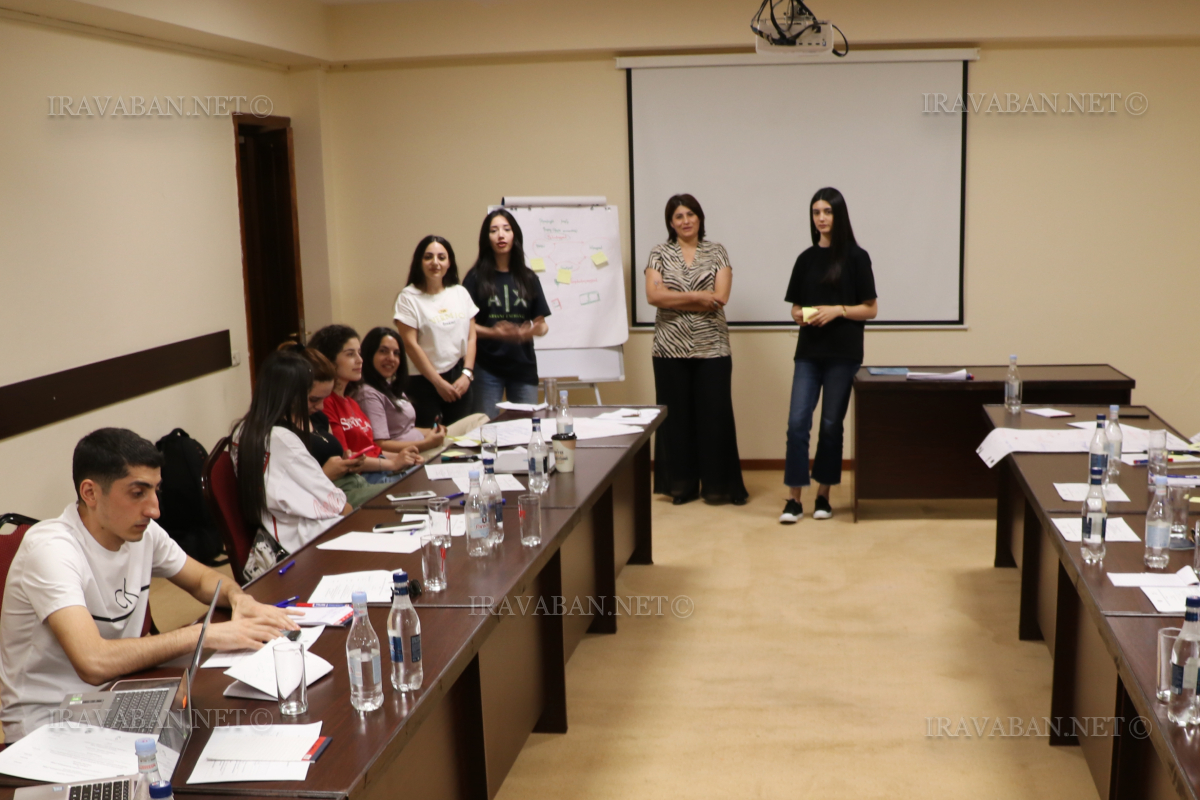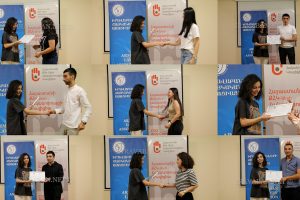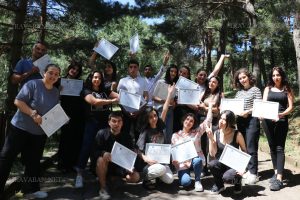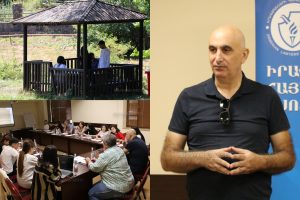As we reported earlier, the Outreach Training Phase of the Anti-Corruption School for Young Leaders, the 1st anti-corruption professional educational initiative operating in the Republic of Armenia started on 13 August.
Education Expert Areg Tadevosyan, President of the “Intercultural Research and Development” NGO opened the first day of the training. He spoke on the topics of universal methods of ability-based learning and non-formal education.
He noted that despite the word “anti-corruption” in the name of the school, it is a holistic education, which is gathered around the axis of the fight against corruption. “Under this “hat” is a kind of complete education itself and is very valuable. You have done so much that gives a completely different quality to this course.”
Areg Tadevosyan also referred to the visits to various bodies and structures within the course, and emphasized their role in terms of face-to-face discussion of the issues raised by the students. “I know many people in Armenia who have been fighting for several years to meet His Holiness. Within this school, you have had access to “unreachable people”.”
Speaking about ability-based learning, the speaker noted that ability is the co-existence of 4 qualities: they are knowledge, skill, attitude and value. Capability cannot be considered as a final product. The formation of the latter is a periodic process, during which it can be constantly improved. Capacity building begins in early childhood and continues throughout life.
After getting acquainted with this part of the lecture, the students were divided into 4 groups and built their own scale of abilities, for which each of them chose their target group.
After performing the group work and analyzing it, Areg Tadevosyan made a smooth transition to the universal methods of informal education.
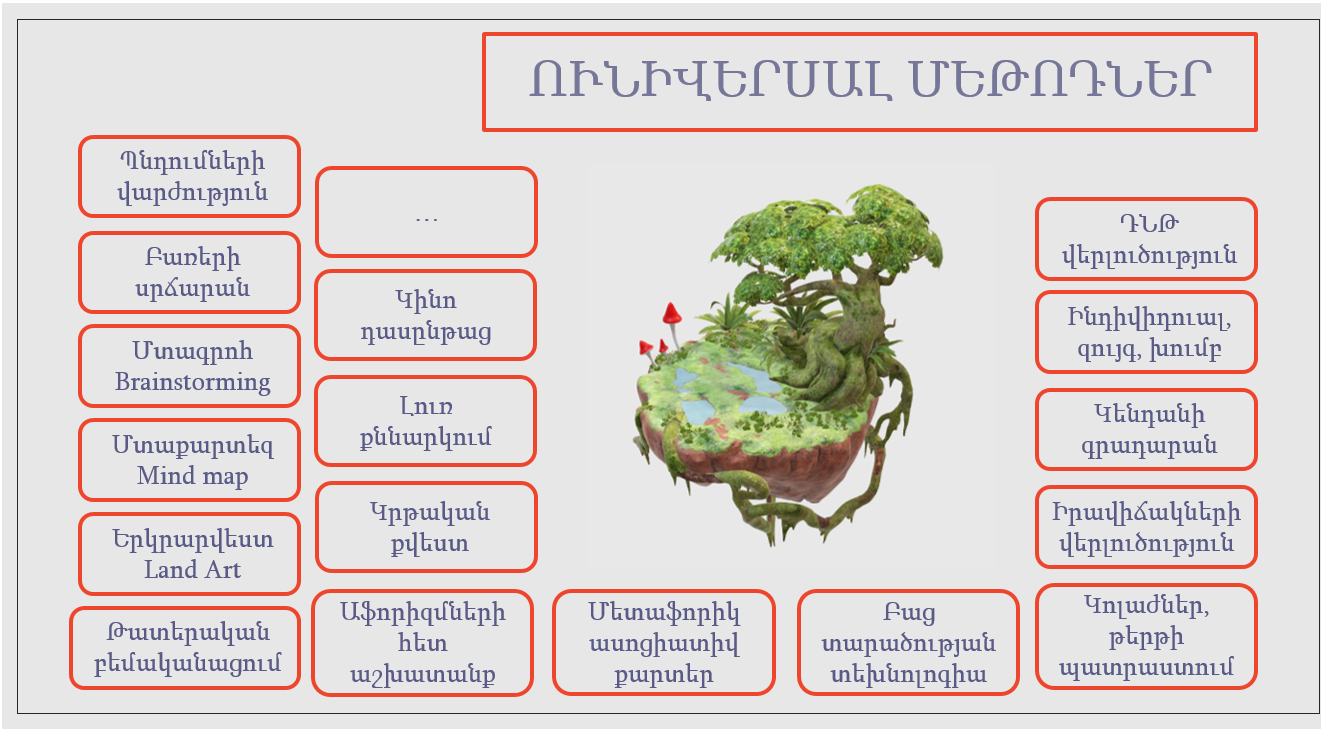
The speaker presented them individually and instructed to implement the plan designed during the previous group work by one or two of the mentioned methods. That is, the students determined their target group, understood their characteristics, simplified their learning problems, and chose the method(s) by which those problems should be solved.
The work of some of the groups was a reason for rather heated discussions. The participants tried together to solve the problems that arose during the group work.
The Anti-Corruption School for Young Leaders was founded by Karen Zadoyan, the President of the Armenian Lawyers’ Association, a member of the Anti-Corruption Policy Council. “The Armenian Lawyers’ Association” NGO is organizing the Anti-Corruption School for Young Leaders in cooperation with the CSO Anti-Corruption Coalition of Armenia.
The information partner of the Anti-Corruption School for Young Leaders is Iravaban.net, independent professional news website.

